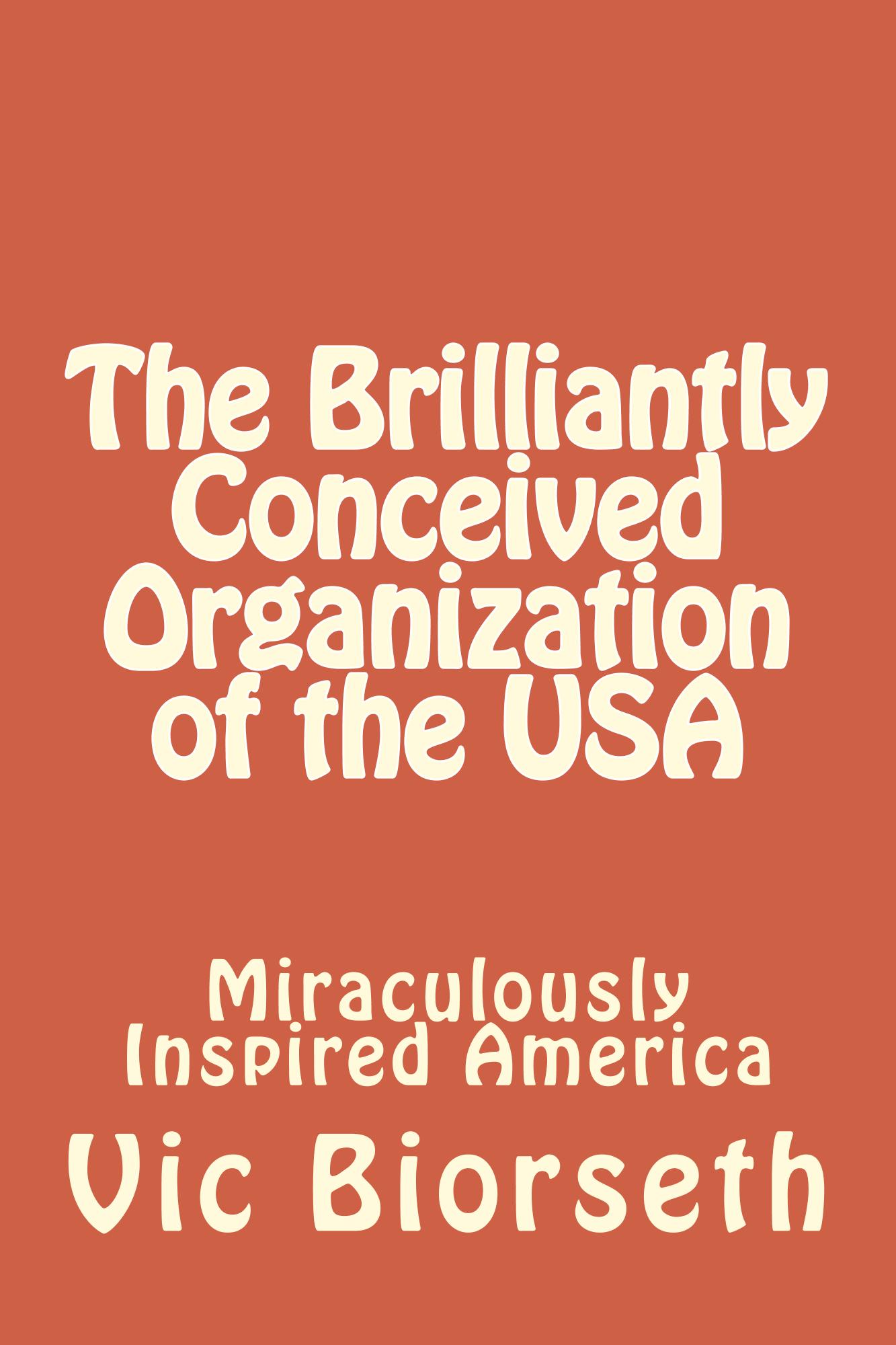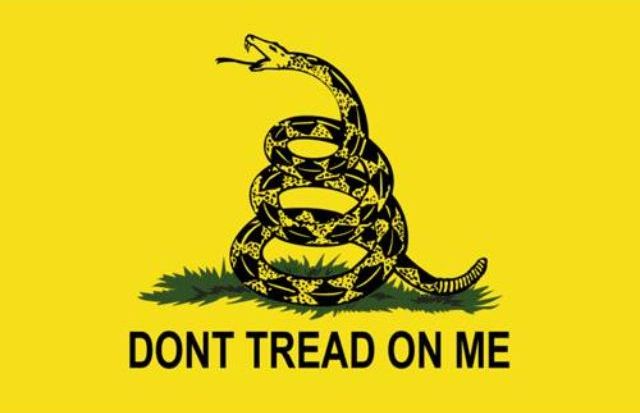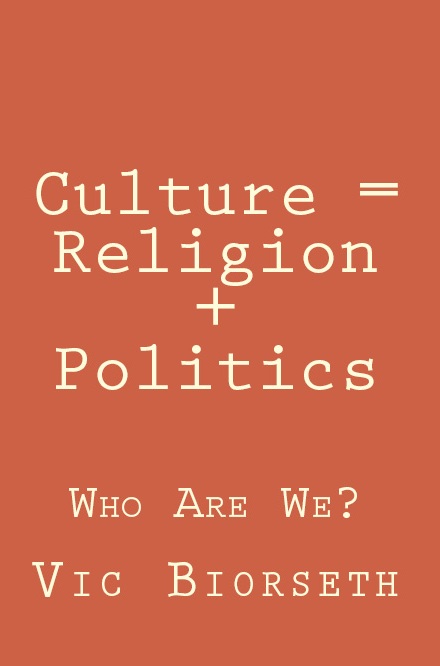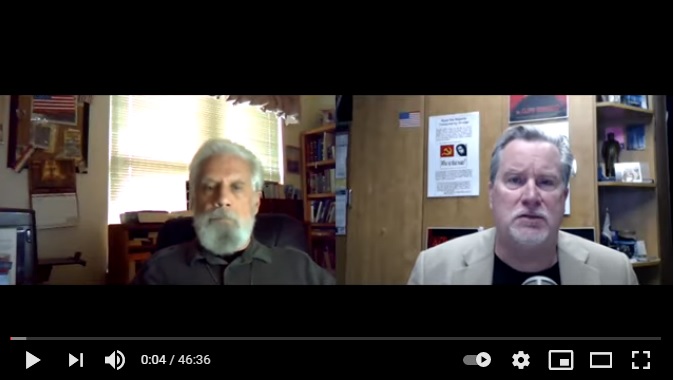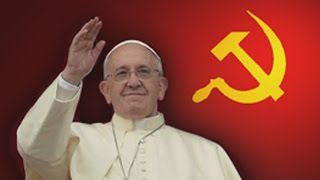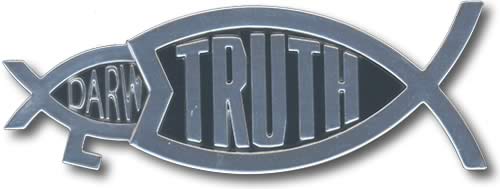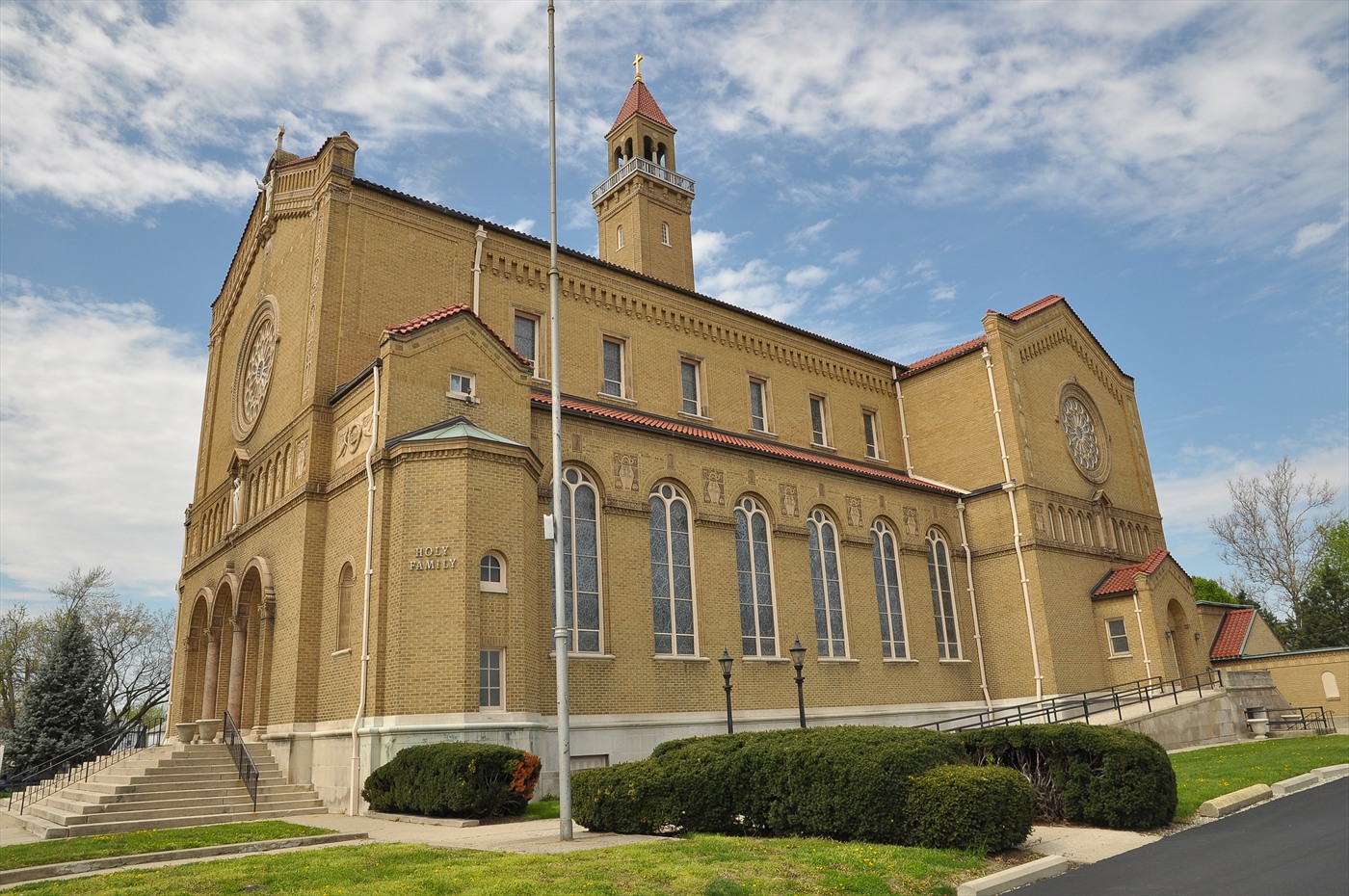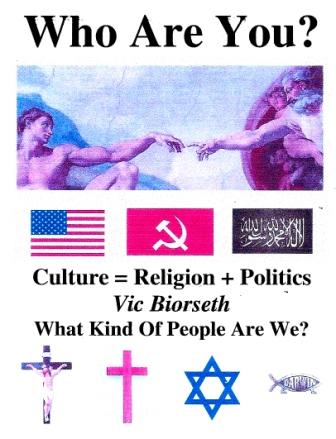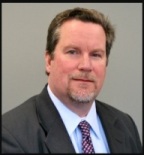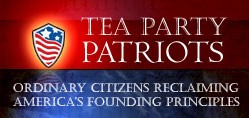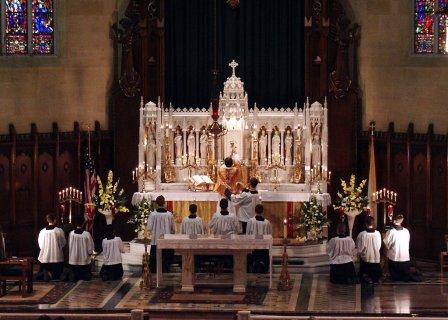Formerly the Thinking Catholic Strategic Center
Confirming Culture=Religion+Politics
Catholic Prayer is described in the Catholic American Thinker.
Presenting Catholic Prayer, in all its diversity.
Vic Biorseth, http://www.CatholicAmericanThinker.com
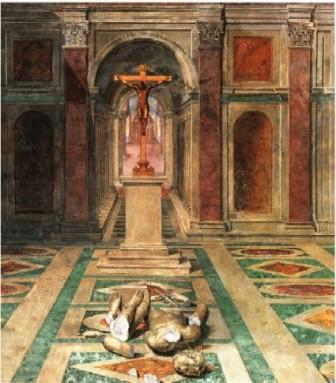
The non-Catholic view of how we Catholics pray and worship is worth serious recognition and careful consideration. It is easy – perhaps too easy – to not care what non-Catholics think about our religious practices. But it is important to try to view ourselves and our practices from another light, if the goal of our Church is to grow, gain disciples, and have any affect on the larger world culture. Many outsiders see us and our Church as merely an extension or modification of Greco-Roman paganism that has adopted such things as idol-worship and pagan holidays into the Liturgy while pretending or play-acting at Christianity. Our statuary and our images and our liturgical holidays are supposedly all adaptations of ancient pagan gods and pagan seasonal rituals, and have no basis in Scripture or “real” Christianity.
If some of our liturgical major events happen to coincide with earlier pagan seasonal rituals, and even if it might be correct that any of them purposely coincide, there is an important question to be asked about that: So what? Would it not have been a good thing to have gotten new disciples who were former pagans to recognize something new on a day they were accustomed to setting aside for another pagan purpose?
One of the holidays most frequently cited by detractors is Christmas, traditionally celebrated on December 25 every year. One argument says that it is cold in Israel in late December, and so the shepherds are not out in the fields at that time of the year. Huh? So, all the sheep come indoors somewhere? All owners of all flocks and herds have room enough indoors for all flocks and herds? If not, then, are all flocks and herds left out for the wolves and other predators, unprotected, all winter? No animals need tending or watching all winter long? Sounds pretty improbable to me.
Scripture itself pretty much tells us that the date of our Lord’s Nativity was in the neighborhood of late December – early January, and thus December 25th is a quite reasonable date.
Let us do a little Scriptural month counting, beginning with the Annunciation. The angel told Our Lady that her kinswoman, Elizabeth, was in her sixth month, carrying John the Baptist. Elizabeth was the wife of Zecharia, the High Priest who was struck dumb by the angel in the Holy of Holies in the Temple, because he did not believe what the angel told him, that he and Elizabeth were to have a child.
There was only one day a year when the High Priest entered the Holy of Holies, and that was the Day Of Atonement, which is in the late September, early October time frame every year. Since Elizabeth was in her sixth month at the annunciation, we can count backward six months from late September to arrive at late March, when Our Lord was conceived by the Holy Ghost.
If we then count forward nine months from late March, we arrive at – surprise, surprise – late December, when Our Lady would have been due to deliver. December 25 is entirely plausible, and even probable, as the actual date of our Lord’s Nativity.
Some Protestants who like to discuss Scripture with me also display quite an interest in Catholic Prayer. I think the Protestant or non-Catholic view of how we Catholics pray is usually pretty far off the mark. There are many prayer “problems” I have argued with non-Catholics (and even with some Catholics) about, but three topics seem to predominate.
- First, the notion that we worship statues and images.
- Second, the idea that we pray to entities other than God, such as the saints, and most especially, to the Blessed Virgin Mary.
- Third, that much or most of our prayer appears to be so methodical, mechanical and so repetitious that it appears to be done rote, as from memory, rather than from true devotion.
Good, thoughtful criticisms, and, as in most things, there is some grain of truth in them. There is always the potential for laxity or inattention in Catholic prayer among the faithful to allow falling into being guilty of one or more of these charges, to some degree. So, the Catholic American Thinker will here address Catholic prayer in an explanatory light, before moving into some favored, popular Catholic devotions, which might present Catholic prayer in a more favorable and acceptable light, for the un-initiated.
1st Charge against Catholic Prayer:
Catholic Prayer before Images and Icons
The first charge against Catholic prayer, stated most contentiously, is that we practice idolatry when we perform Catholic prayer before an icon – a statue, painting, or other sacred image. Because the Catholic devotee is seen at prayer, perhaps kneeling, with attention “fixed” on the icon, the appearance to the un-initiated is that the devotee is worshiping the object.
The Catechism addresses this on page 573, paragraph 22129 –
“You shall not make for yourself any graven image . . .”
The Commandment prohibited any attempt to make an image of what no man had ever seen, in the vain hope of capturing the image of God, Whom, if no one had ever seen, could not be captured in any imagery. That was then. But, since the Incarnation of Jesus Christ, man has seen God. But I'm getting ahead of myself. Permit me to quote Deut 4:10-19:
Which explains the “then” situation of the Old Testament. Everything that exists is a creature – that is, a creation - of God, and therefore not equal to Him, and unworthy of worship, which is due to Him and to Him alone. In Deut 4:9
“You shall not bow down to them or serve them;”
is a key limiting verse in the Commandment regarding the creation of any image, including those not representative of God.
I submit that the original prohibition was limited to images of God, or of any lesser god, such as the images that existed in profusion and were used in idolatrous pagan worship at that Old Testament time, which is prohibited in Catholic prayer. As evidence of this contention, in Exod 10:22 God directs the construction of gold statues of Cherubim for the top of the Ark of the Covenant; in 1 Kings 6:23; 7:13-51, He again directs construction of olive wood statues of Cherubim, and numerous carvings and statues of oxen, lions, etc.; in Num 21:6-9 He directs the casting of a bronze serpent to be mounted on a pole as an instrument of healing. None of these images were of God or of other gods, none was intended to be bowed down before or worshipped by anyone, but they were constructed, as ordered by God Himself, to allow the faithful to recall that these were holy places and/or specially blessed objects, and to turn their hearts and minds toward Him. Which begins to look more like Catholic prayer. God did not intend for men to fall down and worship these objects of art which He commissioned to be made. But He did intend for them to be treated in a certain respectful way, and not as ordinary objects.
But, it goes farther yet. In Judges 17 and 18 is the story of the silver graven image set up as a shrine to God, and the installation of a priest, both of which would later be taken by force by the Danites, and established in a new shrine at Shiloh, which would continue to be considered to be a “house of God” even on into New Testament times. God allowed this. As the inspired author put it, “In those days there was no king in Israel; every man did what he thought was right.” I encourage you to open your Bible, or go to RSV Bible Browse, and actually read those two short chapters for your own enjoyment and edification.
The Face of God, seen by man, adds to Catholic prayer
As I said before, that was then; are we ready for the “this is now” part? Just as the law changed in the New Testament regarding dietary law and the Saturday Sabbath, man saw God, and Jesus thus introduced a new economy of the image into worship. Jesus Christ – God Incarnate – showed us the true image of God, in Himself. Moving into the New Testament–to-now, the Kingdom is at hand period, we see Jesus Himself saying, in John 12:45 “And he who sees me sees him who sent me.” And in John 14:9, we see this: “Jesus said to him, "Have I been with you so long, and yet you do not know me, Philip? He who has seen me has seen the Father; how can you say, `Show us the Father'?” There is also the John 16 prayer of Jesus in which He repeatedly refers to Himself as being one with the Father.
The Crucifix as a Catholic Prayer
My personal favorite topic regarding Catholic prayer involves the linkage between Num 21:6-9 in the Old Testament, and John 3:14 in the New Testament.
First, in Numbers 21, beginning around verse 4, the people sin against God and against Moses. They grumble and complain about the “disgusting” food, and being out in the desert, and fearing death in the wilderness instead of the remembered comforts of Egypt. Then God sent fiery serpents among them, so that many were bitten and many died. Then they finally came to their senses and asked Moses to pray for them, since the Lord hears the prayer of a righteous man, and so Moses prayed for the Lord to deliver them from the fiery serpents. And, in verse 8, we see:
“And the Lord said to Moses, “Make a fiery serpent, and set it on a pole; and every one who is bitten, when he sees it, shall live.” So Moses made a bronze serpent, and set it on a pole; and if a serpent bit any man, he would look at the bronze serpent and live.”
I’m sure you will agree, that represented quite an act of faith. To this day, an image of a serpent (or two) wrapped around a tall pole is the international insignia of the medical profession. But, how is Num 21:6-9 linked to John 3:14?
John 3:14: “And as Moses lifted up the serpent in the wilderness, so must the son of man be lifted up, that whoever believes in him may have eternal life.”
How did Moses lift up the serpent? He cast a bronze image of it, and put it on a pole and fixed it in a high place so that all could see it. In a similar manner, the Church puts an image of Jesus Christ on a pole – the Cross of Crucifixion – and puts it in a high place so that all may see it. It’s on top of our Churches, it leads all our processions, it’s prominent above the altars and tabernacles inside all those Catholic Churches that remain orthodox. It is done just as John 3:14 says we are to do it. Jesus was first “lifted up” in His own Crucifixion. The once shameful imagery of the most horrible form of death, once reserved for the very worst of common criminals, has become, through the Church He founded, the most glorious and most recognized symbol on Earth today. What do you think of when you look at it? I submit that the Crucifix is a Catholic prayer. It is there to be looked at, meditated upon, contemplated, and believed in.
Our Church happens to be blessed with a prayerful woodcarver who makes Lithuanian crosses; you can see some of his work at George A. Mikalauskas, Woodcarver, along with his email address, if you would like to order a special cross.
Early Icons in Catholic Prayer
We have the persistent tradition of the Sixth Station in the Stations of the Cross devotions, in which Veronica wipes the face of our Lord with her veil, and He leaves the image of His face imprinted on her veil. We have the persistent tradition of St. John the Apostle himself making the first known painted icon of our Lord, showing His face. We have the clear archaeological record of images in the Holy Land and in the Catacombs of Rome, showing, not only fish, but the Crucifixion, the Nativity, our Lord, our Lady, various saints and ceremonies. From earliest times, these images have been gazed upon in meditation as devotees offered up their Catholic prayer.
Catholic Prayer in Official Church Teaching
The Seventh Ecumenical Council at Nicaea in 787 AD decided against the iconoclasts - literally, the image-smashers - and doctrinally justified the veneration of sacred icons, declaring such veneration to be not contrary to the first Commandment proscribing idols. This was not a new teaching on Catholic prayer; it was an old teaching officially made doctrine, in its own self defense, as is usually the case when a doctrine or dogma is first defined by the Church. The Council fathers said that "the honor rendered to (such an) image passes to its prototype", and that "whosoever venerates an icon venerates the person portrayed in it." The honor paid to a sacred icon is a "respectful veneration" and not in any sense adoration or worship which is due to God alone.
Catholic prayer involving religious worship before, say, a Crucifix, is not directed to the image in itself, which is merely an object, and, even when blessed, remains a mere thing. Such worship as may be directed toward the thing does not terminate in the thing, but passes on toward the one whose image it represents. Thus, the icon is a major Catholic prayer aid. There is a long, long tradition, which continues today, particularly in the Eastern Rite Catholic Churches united with Rome as well as in Greek and Eastern Orthodox Churches separated from Rome, of artists devoting their lives to prayer and sacred art in the making of these icons, for the purpose of inspiration and bringing others closer to the Lord, through Catholic prayer before icons. I submit that the greatest artists in Western Civilization history were Catholics, including Michelangelo and Da Vinci, and that the greatest known works of art in the Western world are, arguably, Catholic works.
For untold centuries Catholic churches contained sacred iconography in paint, statuary, bas-relief, mosaic and other forms of inlaid-tile, and, most obviously, stained-glass windows, which were known as Scripture stories for the illiterate. Some of the most glorious sacred art was and is contained in beautiful stained glass windows commissioned for Catholic churches. After the Moslems began to refuse Christian pilgrimages to the Holy Land, prompting the Crusades, the devotional tradition of the Way of the Cross came into being, involving special prayers at each of 14 "stations" of the Cross, which pilgrims used to pray in Jerusalem, at the actual site of Christ's long walk, with His Cross, to Calvary.
Once pilgrimage was forbidden, the pseudo-stations were set up in various places for people to make spiritual pilgrimages and say the prayers. It became so popular that the stations were moved into actual churches, and became a normal, expected set of 14 works of art, arranged with the first seven evenly spaced along the North wall, and the last seven evenly spaced along the South wall. (Once upon a time, all Catholic churches were built so that the congregation and the Priest all faced the altar, which was always at the East end of the church, so that the people and their priest were all facing East toward Jerusalem during worship.) Today, you will see these 14 stations represented in beautiful art, usually bas-relief statuary, in all Catholic churches that remain orthodox. The faithful devotee begins his personal pilgrimage at Station One, inside the church, and walks around the inside of the church, pausing at each station for prayers, ending at Station Fourteen. Many Catholic churches still have the more formal, organized Stations of the Cross devotions on Fridays during Lent.
Catholic Prayer Challenged by the Heresy of Iconoclasm
The first serious instances of the iconoclasm heresy of the eighth and ninth centuries were, as I said earlier, doctrinally settled in the Great Council of 787 AD. That iconoclastic notion was, first, born of Moslem influence, and then reinforced by the original, Old Testament understanding of the First Commandment. Interestingly, the viewpoint of the clear martial enemy of the Emperor influenced him to begin a new bloody persecution. Sacred iconography had grown by leaps and bounds through all the preceding centuries, and had become, in both East and West, an ordinary, integral, expected part of Catholic prayer. But some part of the clarion call of Mohammed, representing the viewpoint of his current military enemy, touched the emotions and/or thinking of the Emperor, and, reinforced by essentially Jewish theology, infected his own Christian theology to the point of a break with and persecution of the Church.
The sixteenth century disaster of the Reformation, which ostensibly began as an internal renewal of the Church, caused instead a great revolt against it, culminating in decades of bloody religious wars, which ended in a gradual state of mutual exhaustion, with no clear victor. The record shows that these wars were as much princely, territorial and profit-oriented as they were religious, and they left Europe a patch-work of fiercely sectarian countries, and even barricaded or fortified neighborhoods within countries, counties and cities, divided between Catholicism, Lutheranism, Calvinism, Zwinglianism and Anglicanism. Huge cathedrals and monasteries were either taken over, or sacked, pillaged, plundered and burned. The religious wars of the Reformation destroyed Christian unity in the Western world, and cut millions off from the true Church Christ founded. The new false Protestant doctrines of justification by faith alone and the sole authority of Scripture led inevitably to the denial of the Divinely instituted authority of the Church, and to the endless splitting and splintering and spinning-off of new denominations of Protestantism. Old heresies arose from the ashes of these senseless wars and denominational arguments, and manifested themselves in the new Protestantisms, and among these heresies was, guess what, iconoclasm.
There will be more on the actual Reformation in another planned webpage; here I am only addressing Catholic prayer. Up to the Reformation, Catholic prayer before icons was the norm. All new "Protestant" churches were indeed confiscated Catholic churches. Along with the churches, monasteries, convents, buildings and lands taken by force from the Church were countless works of art, chalices, tabernacles, paintings, sculptures, hangings and so forth. Many of these were priceless, some of them the finest examples of religious art in existence. I highly recommend The Stripping Of The Altars by Eamon Duffy, Yale University Press, for graphic details of what Protestantism did to these blessed religious objects in Britain. You have heard the term defaced. It was born in the Reformation, and referred to chiseling off the faces of statuary and carvings, and the blurring or defacing of paintings. Throughout all of England, mass-books and breviaries were destroyed, altars pulled down, walls "whitened" or plastered-over, veils, vestments and chalices collected by the King's commissioners to be unstitched, broken up or melted down for the benefit of the House of Tudor.
Today, in America, you will find "traditional" old-line Protestant churches that appear to be Catholic in their architecture, windows and other art. But you will find many, many more Protestant churches that have adopted and fervently practiced iconoclasm, among other heresies. And, it should be no real surprise by now that you will find the exact same sort of churches among the newer Roman Catholic churches built in America today. Stained-glass windows that are nothing but an interesting pattern of various colors; no statuary; limited or no iconography at all; no tabernacle; no crucifix; not even a processional crucifix; no appearance of being Roman Catholic. The same sort of Protestantism may be witnessed in these newer Catholic churches in the newer (Modernist?) Catholic liturgy, in which the priest is free to ad-lib, change the words of the Eucharistic prayer, and, essentially, make up his own words of consecration. Just look at these new and theoretically Catholic churches, inside and out. If many of America's Roman Catholic bishops today are not, themselves, iconoclasts, then they have a damned funny way of showing it.
You see pretty much the same thing in how the New Mass was instituted, in our sacred music. The 1967 document Musicam Sancram called for three degrees of music, for different levels of Mass. When all three are sung, then the common Hymns may be admitted. First in priority, if anything is to be sung at all, it should be the opening Sign of the Cross, the priest's orations and the people's responses, the Gospel acclamation, the Sanctus with the preceding dialogue and preface, the Lord's Prayer, and the Dismissal. Second, if more is to be sung, then what must be sung is the Kyrie, the Gloria, the Agnus Dei, then the Creed and the prayer of the faithful. Third, if all of that is sung, then what may be sung are the Scripture readings and the verses at the entrance, offertory, and the communion processions of the Novus Ordo Mass (corresponding to the Gregorian chant "proper prayers" of the Traditional Mass.) Last, the document says, if all these things have been accomplished, then hymns may be admitted.
So, what did the overwhelming majority of Catholic churches in America do? The exact opposite. In most masses in America today, the only thing that is ever sung is the hymns. All kinds of Protestant and even secular music have been brought in and made part of the mass in America. The words of the Council called for, in the Latin, participatio actuosa, which means, in English, actual participation. This was apparently grossly miss-interpreted by our liturgists to mean active participation. With that in mind, and over-emphasized, the liturgists have brow-beaten us into busy-busy recitations, responses and changes in posture during nearly every moment of the mass, often with little or no quiet, reflective time, except during the longer prayers of the priest, offered up for us. Latin was simply dropped, because more of us could actively participate in English, with fewer excuses, as the liturgists gained more and more power, and began actually driving the bus.
The counciliar documents give Gregorian Chant "pride of place" in Catholic liturgy. Heard any Gregorian Chant lately? That's funny, neither have I. The documents gave Latin, as a language, "pride of place" in Catholic liturgy. Heard any Latin at Mass lately? That's funny, neither have most American Catholics. Nothing in any of the documents called for guitars or bongo-drums or saxophones. Nothing in any of the documents called for stages, stage lighting, big speakers, and the kind of architecture normal for theaters. Nothing in any of the documents called for any portly, over-the-hill nuns in leotards warming up in the sacristy, mentally preparing, and then silently awaiting that perfect moment to perform another liturgical dance around the altar.
Sorry; I'm getting off topic again.
A lesser, but still invalid charge against Roman Catholic art runs along the line that says that the Church should not be showing off all that gold and glitter while people in the world are starving, and the Pope should not be dressed and accommodated so richly, and the Vatican should not hold so many priceless works of art, while there is anyone left in the world who is poor. The Church should sell all that stuff and use the money to feed the poor. The argument seems to match that of the Marxist utopian dreamers who think that this world may be made to be absolutely perfect if only we would all cooperate - voluntarily or otherwise - to make it so. And, of course, the counter-argument insists that perfection is not of this world, but of the next.
In Matt 26:6-11, we see this:
[6] Now when Jesus was at Bethany in the house of Simon the leper, [7] a woman came up to him with an alabaster flask of very expensive ointment, and she poured it on his head, as he sat at table. [8] But when the disciples saw it, they were indignant, saying, "Why this waste? [9] For this ointment might have been sold for a large sum, and given to the poor." [10] But Jesus, aware of this, said to them, "Why do you trouble the woman? For she has done a beautiful thing to me. [11] For you always have the poor with you, but you will not always have me. [12] In pouring this ointment on my body she has done it to prepare me for burial. [13] Truly, I say to you, wherever this gospel is preached in the whole world, what she has done will be told in memory of her."
So we have it on the testimony and prophesy of our Lord Jesus Christ Himself that we will always have the poor with us. No matter what we do, someone, somewhere, is going to starve, and someone is going to be poor. We are never to attain absolute equality, in everything, until we enter Paradise. (And even there, I strongly suspect, those who are poor here will have a higher place than the rest of us. I base this on all the places Scripture says that the first will be last, and the last first, and that the mighty will be made low, and the lowly exalted.)
In the predominant sense of the Church, precious metals are preferred as more worthy than more common materials to come into contact with the actual body, blood, soul and divinity of Jesus Christ in the most blessed sacrament of the altar. It's a clear sign of our collective reverence to Him. That's why the most common objects used in Mass are so beautiful, ornate, artistic and sometimes priceless in even small, otherwise humble churches. And yet, I have been in churches that used a wooden chalice, and an ordinary plate. Apparently, it is up to the Pastor, and Pastors come in a wide variety these days.
One of the most beautiful and artistically designed and ornate objects in Catholic churches today is the Monstrance, used to display the Body of Christ, in the form of a Consecrated Host, for special Eucharistic devotions and benedictions. If you have ever watched EWTN you may have seen the enormous, ornate and beautiful Monstrance in use in Our Lady Of The Angels Monastery near Birmingham, Alabama. If so, then you have seen a glorious example of the more orthodox Catholic view, regarding the nature of the Monstrance. Before she suffered her stroke, someone once, with indignation and incredulity, asked Mother Angelica why she insisted on garishly displaying such an enormous, downright huge monstrance. Mother's simple answer was,
"because I couldn't find a bigger one."
(Words alone cannot begin to express how deeply my wife and I love that blessed, holy, feisty old woman. Mother Angelica is surely one of the greatest and bravest American Champions of Holy Mother Church, orthodoxy, and the Gospel Message of Jesus Christ.)
As a simple, practical matter, try a thought experiment, and see if you don't wind up with the same result I wound up with. We begin with a Church with all the trappings of wealth, and with millions and millions of poor people throughout the world, needing to be fed.
QUESTION: If we gather all the Chalices and other objects in all the Catholic churches, to melt down for their precious metal and separate out all the stones and jewels for sale, and if we sold all the art works held by the Church, along with all the great buildings and lands, and used the proceeds to feed all the poor of the world, - what would we have before us, the very next day?
ANSWER: An impoverished Church, and the same millions and millions of poor people, throughout the world, needing to be fed.
Redistributionism simply does not work. It's been tried, and found wanting. The fact of the matter is that the Catholic Church currently feeds more poor people needing to be fed than any other organization, or grouping of organizations, or any government, or grouping of governments, or any existing entity of any kind in the world today. And she does it more effectively than anyone else, and on a consistent, grass roots, day by day basis. By comparison, governments and rock stars generally feed dictators and/or bureaucrats, or whole, giant bureaucracies, rather than the poor people needing to be fed. Many charities feed mostly themselves, with nine dollars out of every ten going to the charity itself, and with maybe one dollar out of the ten going to the poor, but only after the dictators and bureaucrats and criminals all take their cut out of it.
Marxists are generally not smart enough to understand how Marxist redistributionism kills the goose that lays the golden eggs. It simultaneously punishes entrepreneurial success by confiscating its rewards, and rewards non-productivity, creating, feeding and training up a completely dependent class of people to be a drain on the larger society. Capitalist countries typically produce people who will feed themselves and produce things in abundance, and Socialist countries typically produce hungry, dependant, mouths to feed, who will only consume, and will produce things only minimally, because it does not pay them to produce any more than they absolutely have to produce. Look at any country with a large population of very hungry people, and you will be looking at a people who are somehow oppressed, and not representatively governed, and not living and freely operating in a free and open marketplace.
The Church needs her art, and so long as God deserves His due, plenty of Catholics throughout the world will be happy to regularly pay the cost, to support their Church, and to feed the poor, locally, and in diocesan efforts, and in Missionary efforts, and in the global efforts of Rome.
2nd Charge against Catholic Prayer:
Prayer Addressed to Entities other than God
The second charge against Catholic prayer involves the idea that we pray to entities other than God, such as the saints, and most especially, to the Blessed Virgin Mary. This complaint carries within it multiple sub-threads of charges. For instance, the idea that praying to someone other than God represents worship and therefore idolatry; the notion that praying to or for the dead is useless, because the dead are asleep in Christ and will remain in that state until He comes again; and the notion of intercessory prayer, which is deemed unnecessary, since we are perfectly free to pray directly to God Himself.
Praying to someone may be likened to asking something of someone. In old English, it was even used that way in common language, as in, I pray thee, come in to supper, or, your children are well, I pray? Nothing more, and nothing less. Which brings us to the intercessory prayer complaint. Why don't we just ask God? Well, why don't Protestants just ask God? Have you ever prayed for someone else? If so, you have acted as an intercessor for someone else. If anyone has ever prayed for you, then you have been the beneficiary of someone's intercessory prayer.
Catholic Prayer and The Righteous Man
Go back to Numbers 21 and re-read the sin of the people, and their request to Moses to pray for them, and Moses' intercessory prayer for them, offered on their behalf. Why didn't they just pray directly to God? Because they felt guilty and unworthy, and because they knew that the Lord hears the prayer of a righteous man. In an analogous fashion, Protestants ask their ministers, Jews ask their rabbis, and Catholics ask their priests to pray for them and their families in times of grief or stress or peril. It's why whole congregations will pray for the nation, or for leaders, or for the poor, or for those at sea, or for the armed forces, or for some special cause.
For any Christian, how would the efficacy of the intercessory prayer of any living person compare to that of our Lady, the Blessed Virgin Mary? She, who, for nine months of her Earthly life, was worthy enough to bear God incarnate within her, to have become the new Arc of the Covenant containing within herself the Holy of Holies? Who, ever, among mere mortals, was more righteous? Herself conceived without even the stain of Original Sin and free of sin all her life, she spent more time and effort with Jesus Christ, the Lord thy God, than anyone. She gave birth to Him, nursed Him, presented Him, raised Him, taught Him to Walk, heard His first words, looked after and worried about Him, followed Him, stood beneath His Cross at Calvary, became a "new mother" to St. John (and us,) beheld His empty tomb, was in the Upper Room at the Pentecost, was assumed into Heaven, and was crowned Queen of Heaven and of Earth. Now, as much as I cherish the intercessory prayer of my Pastor, our Lady wins this competition, hands down. Sorry Fr. Mike.
Catholic Prayer and Purgatory
Which brings us to the rather silly, mostly Protestant notion that prayer for the dead is useless. We Catholics believe in the Communion of Saints, as we pray (and profess) when we recite the Apostle's Creed. The Apostle's Creed, like the Nicene Creed we recite at Mass, is, at once, a recitation, a public profession of our faith, and a prayer. The Communion of Saints article of faith describes three branches of the Church of Jesus Christ: the Church Triumphant, meaning Heaven or Paradise, where the Saints reside with God; the Church Suffering, meaning Purgatory, or the Place of the Dead, which the Jews called Sheol, where souls are being purified to be made worthy of coming into the Presence; and the Church Militant, here on Earth, where the war with Satan continues. Now, there is also Hell, which is not part of the Church, and is a permanent, hopeless condition.
In Old Testament teaching, souls in the hopeful place-of-the-dead were simply awaiting the Resurrection. In New Testament teaching, souls with hope experience purification leading to Sainthood, although all will participate in the Great Resurrection. (There will be much more on this in a future webpage on eschatology, or the Last Things.)
There is, understandably, some confusion on what the Church now calls Purgatory because the word Hell is used interchangeably in some places in Scripture to represent both places, or states of being. Christ showed us, by demonstration, how to live, how to carry our crosses, how to die, how to get through Purgation, and how to get to Heaven. We know from 1 Peter 3:17-20 that He went and "preached to the spirits in prison" for the part of the three days between His death and His Resurrection. These people had hope of salvation, or He would not have preached to them. Therefore, we may say that this was not the Hell that we think of in the permanent, hopeless sense.
The Tradition of the Church and her Scripture speak of "cleansing by fire." For instance, 1 Cor 10-15 Paul speaks of the Christian foundation (the grace given at Baptism into Jesus Christ) which is to be built upon in this lifetime. Beginning at verse 12, we see:
"Now if any one builds on the foundation with gold, silver, precious stones, wood, hay, stubble - each man's work will become manifest; for it will be revealed with fire, and the fire will test what sort of work each one has done. If the work which any man has build on the foundation survives, he will receive a reward. If any man's work is burned up, he will suffer loss, though he himself will be saved, but only through fire."
In 1 Peter3-5 we see again an example of people being compared to substances containing gold, and needing to pass through the fires of purification to be made completely gold-like, meaning worthy.
". . . By his great mercy we have been born anew to a living hope through the resurrection of Jesus Christ from the dead, and to an inheritance which is imperishable, undefiled, and unfading, kept in heaven for you, who by God's power are guarded though faith for a salvation ready to be revealed in the last time. In this you rejoice, though now for a little while you may have to suffer various trials, so that the genuineness of your faith, more precious than gold which though perishable is tested by fire, may redound to praise and glory and honor at the revelation of Jesus Christ."
When we look at Matt 12:32, the ages spoken of by the inspired author are
- life,
- death (place of the dead), and
- eternity.
". . . but whoever speaks against the Holy Spirit will not be forgiven, either in this age or in the age to come."
Catholic Prayer and Mortal Sin
Which describes the most fatal of mortal sins. But, a lot of Protestants don't believe in mortal sin, despite what Scripture has to say about it. In an explanation of mortal sin, and incidentally another support for intercessory prayer, we turn to 1 John 5:16-17:
"If any one sees his brother committing what is not a mortal sin, he will ask, and God will give him life for those whose sin is not mortal. There is sin which is mortal; I do not say that one is to pray for that. All wrongdoing is sin, but there is sin which is not mortal."
Some Bible versions may say fatal rather than mortal; the meaning is the same: sin unto death. The only way out of a state of mortal sin and back into grace is true contrition, confession and absolution, and even that does not, in and of itself, get you out of Purgatory, or some sort of purgation or purification process, either in this life (age) or the next. Sin that is not mortal is defined by the Church as venial sin. What's the difference? Mortal sin always involves violation of one of the Commandments. Mortal and Venial sin are differentiated by the degree, and sometimes the mitigating circumstances.
Example: If my wandering eye should fall upon a particularly attractive and alluring lady, and I entertain unchaste thoughts about her, I am committing sin. To the degree that I avert my eyes and/or take charge of my mind, to that same degree do I move away from sin and back toward grace. If I knowingly stare at her more interesting parts and dwell on unchaste thoughts about her, I thereby commit mortal sin, in that I am committing a mental form of adultery, if I am married, or fornication, if I am not married. Because the sexual impulse is a natural thing, we all, generally, are guilty of at least venial sin in this area; it seems unavoidable. But we are men, called to a higher dignity than animals, and called to self control, in imitation of Christ. He is our model.
Now, I have had the experience, and perhaps you have too, in which the first thing I see on leaving a confessional is a really gorgeous woman, and I felt like turning around and going right back in there again. But, we cannot allow ourselves to be so overly scrupulous, or we might as well never come out in public. Such things are natural and we merely need to acknowledge and compliment beauty, control our own thoughts, and move on. We all sin. We are also all called to self control. Whenever that sort of thing happens, try silently praying a Hail Mary to yourself.
Protestantism, or at least some forms of it, teaches that there is no need to be purged from post-Baptismal sin, because Christ has personally taken all our sin upon Himself and purged it from His cross, and has thus "covered" the Baptized with the cloak of His own righteousness. Note: not cleansed, but covered; Protestantism seems to see man as, essentially, dirty, and not good. Some of these people really believe in the principle of once saved, always saved, in which, no matter what they do, they are still "saved." For them, once saved, there is no such thing as mortal sin. But Jesus Himself instituted the Sacrament of Confession, as we see in John 20:22-23:
"And when he had said this, he breathed on them, and said to them, "receive the Holy Spirit. If you forgive the sins of any, they are forgiven; if you retain the sins of any, they are retained.""
I submit that there would be no need for Confession if we couldn't possibly sin after Baptism, or if Christ's sacrifice "covered" our sin; all we would need would be Baptism.
Yet we see in James 5:16-17,
"Therefore confess your sins to one another and pray for one another, that you may be healed. The prayer of a righteous man has great power in its effects."
Why would he tell Baptized people to confess their sins unless that was necessary? Similarly, in 1 John 1:9, we see
"If we confess our sins, he is faithful and just, and will forgive our sins and cleanse us from all unrighteousness. If we say we have not sinned, we make him a liar, and his word is not in us."
Again, we have another Apostle telling the Baptized to confess their sins, and be "cleansed." Obviously, Baptism - being born again of water and the spirit (John 3:5) - is not necessarily a permanent condition.
In Matt 22:32, and again in Mark 12:26, Jesus quotes Moses from the Old Testament, identifying God as the God of Abraham, Isaac and Jacob. He then declares Him to be the God of the living, not of the dead, which meant that Abraham, Isaac and Jacob were alive. We know from 1 Peter 3:17-20 that Jesus Christ "preached" to them when He descended after His Crucifixion and death, and before His Resurrection.
And we know from Luke 23:42-43 that the perfect prayer of the Good Thief: "Jesus, remember me when you come into your kingly power" received the response of our Lord: "Truly I say to you, today you will be with me in Paradise."
Question: Where is Paradise?
Answer: In the Presence of our Lord.
Wherever God is, that is Paradise. By His own personal holy Sacrifice, Heavens gates were opened wide, and the souls then in Purgatory were released. When the Church's first deacon, Stephen, was martyred by stoning, his final revelation was recorded in Acts 7:55-56,
"But he, full of the Holy Spirit, gazed into heaven and saw the glory of God, and Jesus standing at the right hand of God; and he said, "Behold, I see the heavens opened, and the Son of man standing at the right hand of God.""
Catholic Prayer for the Dead
The continuous, uninterrupted teaching of the Church is that our prayers can benefit dead Christians. There is one Scripture verse that is hotly debated by all flavors of Christian scholars regarding it's meaning, including, most particularly, the Mormons. The verse is 1 Cor 15:29
"Otherwise, what do people mean by being baptized on behalf of the dead? If the dead are not raised at all, why are people baptized on their behalf?"
Paul was writing about a fringe-group practice that he strongly disagreed with. Mormons use this verse to justify their obsession with genealogy practiced for the purpose of gaining names of dead people, for stand-ins to use while being baptized for the dead. The belief is that these people will later serve the one who got the name after he is "exalted" and becomes another god, see? Whatever the contentious position of anyone with an opinion about this verse is not important here; my only reason for mentioning it here is this: it shows that Christians of that time were interested in doing something for the dead. Now if Purgatory did not exist, and the predominant Protestant view that only Heaven and Hell existed were correct, then the condition of the dead would be absolutely final, and there would be nothing whatsoever anyone could do for the dead.
Paul, in 2 Tim 1:16-18, is praying Onesiphorus, who by the context of this passage and that of 2 Tim 4:19, is dead.
We have also the verses that refer to those under the earth. We need to consider where they are, if a place such as Purgatory does not exist, and there is only Heaven and Hell. Remember, God refuses the prayer and worship of the obstinate unrepentant sinner, which is to say, the damned. Yet we have these verses referring to those under the earth offering praise and prayer and worship.
Philippians 2:10-11:
That at the name of Jesus every knee should bow, in heaven and on earth and under the earth, and every tongue confess that Jesus Christ is Lord, to the glory of God the Father.
Revelation 5:3:
And no one in heaven or on earth or under the earth was able to open the scroll or to look into it.
Revelation 5:13:
And I heard every creature in heaven and on earth and under the earth and in the sea, and all therein, saying, "To him who sits upon the throne and to the Lamb be blessing and honour and glory and might for ever and ever!"
How do we know that God does not accept praise or prayer from unrepentant sinners? Look at Psalm 66:18, Proverbs 1:28-30, Isaiah 1:15, 59:2, Jeremiah 6:20, Amos 5:21-24, Micah 3:4, Malachi 1:10, John 9:31, Hebrews 10:38. Yet, someone, from under the earth, was able to praise and worship and pray to God in the previous passages. They must have been someplace other than Hell.
We also have, again, Jesus' words in Matt 22:32 and in Mark 12:26 in which He describes Abraham, Isaac and Jacob as being alive. If they were alive, then they were not in the final, closed, hopeless, dead location or condition of the permanently damned in Hell. If they were not in Hell, then, where were they? In the netherworld, temporary place the Jews called Sheol and the Church calls Purgatory. We know from John 5:22 that the Father judges no one, but has given all judgment to the Son, and from John 14:6 that Jesus said "I am the way, the truth, and the life; no one comes to the Father, but by me." Jesus is the only name under Heaven by which men may be saved; He is described as the gate and the door to the fold. John 3:18 tells us that those who believe in Jesus Christ are not condemned, but those who do not believe in Him are condemned already, by mere dint of not believing in Him.
Now, Abraham, Isaac and Jacob had never in their Earthly lifetimes heard the name of Jesus Christ, yet we know that they were not in Hell. They needed to hear His name. Therefore, Jesus went to them. Where? To Purgatory, where they were. And, while He was there, it was Paradise, because of His holy Presence there.
But the best and most obvious NT references to prayer for the dead are found in the Old Testament books thrown out by Martin Luther when he invented Protestantism.
Protestant Canon developed by Martin Luther
In 2 Maccabees 12 we see Judas and his men taking up the bodies of their fallen comrades, and finding under their tunics tokens, or good-luck charms, of the idols of Jamnia, which the law forbade. Beginning in verse 42
So "they turned to prayer, beseeching that the sin which had been committed might be wholly blotted out"
and he took up a collection from the soldiers and sent it to Jerusalem for a sin offering for them, for if Judas were
"not expecting that those who had fallen would rise again, it would have been foolish to pray for the dead . . . therefore he made atonement for the dead, that they might be delivered from their sin."
This passage shows that the Jews believed in prayer and atonement for the dead, whether this passage is accepted by anyone as canonical and Scriptural or not. And, therefore, this passage rankled Martin Luther, when he was busy spending a mere 10 weeks plagiarizing a pre-existing German Bible version called the Codex Teplensis and pretending to be working from "original" texts in Hebrew and Greek to come up with an entirely new interpretation. That he actually plagiarized the Codex Teplensis is proved by the deadly parallel that appears, verse by verse, throughout his entire work, with whole books appearing in virtually exact copy. Luther's "new" Bible was merely a revised edition of the older German text. There will be more detail in a future page on the Bible, but here it is important to note that Martin Luther modified Scripture and amputated whole books from the Old Testament, and almost amputated whole books from the New Testament, to satisfy the requirements of his new religion. One of which, addressed here, involves his insistence upon the non-existence of Purgatory.
To get rid of 2 Maccabees, because it contained such clear and explicit prayer for the dead, Luther pretended to use, for his new Bible, the then current Jewish canon for the Old Testament, which had changed since the time of Christ and the Apostles. So, as much as I would prefer to save it all for the planned Bible page, it is necessary to go into Canon history a little bit right here.
Scripture scholars agree, based on nuances and idiosyncrasies of the language used, that all the Old Testament quotes that are found in the New Testament as coming from the lips of Christ and the Apostles and the Evangelists, all came out of the Greek Septuagint. The Septuagint was put together by Hellenistic (or Greek educated and oriented) Jews in Egypt, for the great Library in Alexandria, at the order of the king of Egypt. Copies were made and used throughout the Hellenistic world, and were also used in Palestine in synagogues. At this point, the most important historical thing about the Septuagint is this: It became the predominant, pre-Christian era legitimate Jewish text in use. It was used in Palestine by Rabbis and it was employed by the Evangelists, the Apostles, the recognized early Church Fathers and all the ecclesiastical writers of the early Church. As such, it was the most orthodox text used, although there may have been some contention with one or more Jewish factions that did not use it.
At any rate, the first Christians did use it, Jesus Himself quoted it, and it definitely contained all the books that we see today in the Catholic canon for the Old Testament, including 2 Maccabees, which posed the serious Purgatory problem for Luther. History, and a newer Jewish canon, provided him with a way out of his dilemma.
Historically, the early Christians frequently worshiped right alongside the Jews in Jewish Synagogues. This was a common practice among many predominantly Jewish Christians right up until another Jewish revolt against the Romans, precipitating a Roman slaughter of epic proportions, culminating in the absolute destruction and burning of the Temple in Jerusalem, about 70 AD. In this revolt, the Christians more or less stood aside as neutral, and did not participate, or come to the aid of the Jews. If they had participated on the side of the Jews, the outcome would have been the same; the Romans would have won anyway, and the slaughter would have just been that much greater.
Be that as it may, that pretty well tore it, as far as the relationship between the Christians and the surviving Jews was concerned. The Christians were no longer welcomed by the Jews in their Synagogues, or anywhere else. Then there was a Jewish Council in Jamnia about 90 AD or so, which theoretically laid the groundwork for a new Jewish canon of Scripture. At that time, the only existing "one book" version of what would come to be known as The Old Testament was the Septuagint, which was written entirely in Greek, and which was quoted in the various books that would eventually comprise The New Testament. The Jewish authorities at Jamnia had three new rules by which to judge canonicity, and they were:
- Conformity to the Torah
- Could not have been written after the time of Ezra (about 400 BC)
- Had to be written in Hebrew.
Well, the Hebrew requirement knocked out the whole Septuagint, which was all written in Greek. And, the pre - Ezra requirement knocked out a bunch of books, no matter what language they were written in, including everything that would later become The New Testament, and also including, guess what, 2 Maccabees. Luther must have screamed "Bingo!" when he saw that one. (Bingo is an ancient Latin term that means, roughly, "I win.") Martin Luther used this strictly Jewish and at least partially anti-Christian - motivated canon instead of the one already in use by the Church, as shown in the Vulgate and all vernacular versions existing at that time, including even the German version Luther was really working from.
The Old Testament books that were dropped by the Jews, and later by Luther, were Judith, Wisdom, Tobias, Ecclesiasticus, 1 Maccabees, 2 Maccabees, parts of Esther, parts of Daniel and the Prayer of Manasses. These were part of what the Church called the Deuterocanonical Books, and were subject to some contention in the Church up until the time when the list of books for St. Jerome's Vulgate - the world's first one book Bible - was settled in the late fourth century (Pope Damascus, 382 AD), although they were always in use by the Eastern Church and by all Christian occupants of the Holy Land, who had carefully preserved them. They were included in the Latin Vulgate, completed about 400 AD, and in all subsequent vernacular translations of the Vulgate until Luther, over a thousand years later. Luther took them out of his new Scripture and added them to his personal, or Protestant, list of Apocrypha, which is why it does not match the pre-existing and unchanged Catholic list of Apocrypha.
Now, many Lutherans and other varieties of Protestants will deny the validity of all of this, but the evidence and history are there for anyone who cares to objectively look into it. Real history is very hard to credibly deny, and even harder, if not impossible, to kill. Too many copies of the Vulgate were produced by the hard work of too many dedicated monks and nuns, in Latin as well as in many other languages, for anyone to pretend that they did not pre-exist the work of Martin Luther, or that Luther "discovered" a hidden, secret, one-book Bible. The Vulgate was written in Latin, the vulgar language, meaning the language of the masses, the language of most common world-wide usage. The educated world was increasingly moving away from Greek and into Latin. In Western Culture, to be educated to any level at all meant, quite literally, to be able to speak, read and write in Latin. Latin was the very first foundation block for any formal education, in any subject, because all education was done in Latin. This remained true right up into Luther's day.
Why even mention it here? Well, because of the patently false Protestant claim that the Church hid Scripture from the masses, and that Martin Luther put a stop to that, with his German Bible. Here is the principle at play here, which confounds that false Protestant claim:
- If anyone could read in those days, he could read Latin.
- Anyone who could not read Latin could not read, period, and could not read the Bible, no matter what language it was written in.
This simple, formal educational fact was true throughout all of Western Civilization. Only in the East did Greek retain linguistic preeminence. And, even though all educated Westerners could read Latin, many vernacular language copies were produced by the Church. Just as the Church developed the notion of education for the masses, through the development of the university, she also developed vernacular language Bibles, so that the Word could be read to the uneducated without the need for the educated reader to stumble through linguistic interpretation tasks, allowing concentration on the Word itself, in whatever language. Luther knew all this very well, because the Codex Teplensis he was copying almost verbatim was one of these vernacular interpretations of st. Jerome's original Latin Vulgate, and it was written in German. No one can pretend that it didn't exist, or that it didn't pre-date Luther's Bible, or that it wasn't plagiarized by Luther to produce his new Protestant Bible.
So, to get back on track, praying for the dead is solidly established in Scripture, objections of Luther notwithstanding. The Church does not specifically define Purgatory as being a place, or a process, or even if it actually involves fire. Indications are that the purgative, or purifying process is not particularly pleasant. Yet, it is a place or state of great joy, because everybody there is eventually going to wind up in Heaven, with no exceptions. My theological mentor and spiritual advisor has proposed, as one possibility, that the purgative pain might be the recognition of the absence of the Presence of God. Or, it might be the searing pain of standing for Judgment, with all your worldly sins right there in front of you, glaringly exposed, with none left out. I pray to find out for myself; I have been so bad, there is no way I can hope for Sainthood, but I can certainly hope for Purgatory, and that is my goal.
At the second ecumenical Council of Lyons in 1274 the doctrine of Purgatory was officially defined by the Church, not as something new, but as something old in need of official declaration. It regarded the ancient teaching on those baptized who fell into sin; they could not be baptized again, but they could be "purged" of their sin through penance for their sins of omission and commission. And if they died before this purgation was complete in this life, it could be completed in the next, in Purgatory. The Council said that we, the living, could contribute to the penance of the contrite dead in Purgatory through our own prayers, Masses, alms and other works of piety done in their name or on their behalf. Those baptized who do not sin go straight to Heaven. Those baptized who later sin, but are "purged" in this life through penance and/or suffering in this life, also go straight to Heaven. Otherwise, they go to Purgatory. (Obstinate, unrepentant sinners, of course, go straight to Hell.)
It is right, and just, and proper to pray for the dead. Just as it is right and proper and just to receive as well as to offer up intercessory prayer. Catholics have been praying for the dead for a couple of thousand years now. As the Western Culture new kid on the block, Protestantism should take a closer look at their sole authority, the Bible, for guidance on the matter. While there, they should look for where in the Bible it says that the Bible is the sole authority they should be using. (If you find it, let me know where it is; I simply can't find it.)
3rd Charge against Catholic Prayer:
Catholic Prayer is Repetitious and Mechanical
The third charge against Catholic Prayer states that Catholic prayer appears to be so methodical, mechanical and so repetitious that it appears to be done rote, as from memory, rather than from true devotion.
Well, sometimes it is, and that's not all bad, unless and until we get to the point where we can be thinking of something other than the object of the prayer, even while praying it. Which is not a good thing to do. However, it is the way we were taught and directed to pray, by Scripture, by Jesus Himself, and by the Psalmists. In Matt 6:9 and in Luke 11:2, Jesus Christ, the Lord thy God, instructs you in how you are to pray, and gives us His prayer, the Pater Noster, or the Our Father, known and beloved through the ages as "The Lord's Prayer." Do you know what that is? It is a repetitive prayer. Now, few of us will ever pray perfectly in this life. But I doubt that you will find a better beginning point or mid-point or ending point in your spiritual life than this perfect prayer, authored by God Himself.
If you pick it apart and analyze it, bit by bit, as the Catechism does, you will see why it is called perfect. It has the perfect salutation, it establishes the perfect relationship, it contains the perfect request, and it offers the perfect conditions on which to make the request. But even if you don't do any of that, you should pray this prayer because He said for you to pray it.
In His agony in the Garden, in Matt 26 begining at 39, Jesus prays, three times, in virtually the same words, to let the cup pass from Him, yet submitting, that His Father's will be done.
Look at the places in Scripture where our Lord and the Apostles and the other disciples sing hymns, as in Matt 26:30, Mark 14:26, Acts 16:25, 1 Cor 14:26, Eph 5:19, Col 3:16, and where they sing Psalms, as in Eph 5:19 and Col 3:16. Do you know what a Hymn is? It is a repetitive prayer. For the most part, so are the Psalms. Almost all of them give praise and glory to God, and appear to be designed to be sung. And, indeed, we sing one (or we should sing one) at every Mass.
In Rev 4:8 we hear the words we Catholics hear at every Mass, in praise to the One on the Throne. Revelations tells us that, day and night, they never cease to sing "Holy, holy, holy, is the Lord God Almighty, Who was and is and is to come!" And the twenty-four seated around the Throne fall down singing "Worthy art thou, our Lord and God, to receive glory and honor and power, for thou didst create all things, and by thy will they existed and were created." Never ceasing, day and night, sounds a bit repetitious, does it not? In Rev 8 we see the prayers of the Saints poured out and mingled with the incense before the Throne, and we are thus assured that prayer from the other side is received.
Now, there is certainly nothing wrong with spontaneous prayer that is originated and authored on the spot; some people seem to have a real talent for that sort of prayer, but most of us don't. When I say talent, I mean that most of us mere mortals who hear it recognize it as well done; whether God feels the same way about it only He knows. I am reminded of the simple prayer of the tax collector in Luke 18:13, Lord, have mercy on me, a poor sinner; and the blind men in Matt 20:30-31, Lord, have mercy on us, son of David; and so many others. The poor woman in the synagogue. The good thief. The lepers. The faith of the friends of the paralytic. The touch of the woman with the hemorrhage. Mary's do whatever he tells you at the wedding feast. All of these were very simply worded prayers, or unspoken acts of faith, and all of them were heard by the Lord. It is good if you can be eloquent, but eloquence is not necessary; it is better to be simple and direct when praying for your needs or someone else's needs.
Catholic Prayer and Glossalalia
We have this large and growing Catholic Charismatic movement going, fed by the popular Life In The Spirit seminars, during the last session of which, Catholics are "baptized in the Spirit" and - some of them - begin speaking in tongues. My wife and I attended one of these a few years ago, not knowing ahead of time what it was all about. All we knew was that some of the people we knew who were involved seemed to be on fire with the faith, and filled with joy, and we wanted some of that. Within the first couple of sessions we knew about the "tongues" part of what the final outcome was supposed to be. We were, simultaneously, alarmed, and intrigued. I did some rather rapid research, and found some support coming from some heavy-weights, including even John Paul the Great. Not red-hot support, but not what you would call mild or tepid support, either. So we prayed about it, and gave it our best shot, entering into it with all our hearts. If it was possible to get that close to the Holy Ghost, where He might speak through us, or grant us a charism, we definitely wanted in on that.
We diligently followed the program, the readings, the prayers, and attended all the meetings. On the "big" last day, when we were "Baptized" (no water involved,) we didn't speak in tongues. Some people in our group did; some others did not. We were vastly disappointed, but didn't let on how deeply disappointed we were. We were invited to other seminars to try again, but we didn't follow up on it. We just prayed for understanding, kept it in the back of our minds, and went on about our business. But, we did do a whole lot more investigating on our own time.
There were, first of all, some interesting parallels in the rather short history of glossalalia in Protestantism, and the even shorter history of glossalalia in Catholicism, which made my concern light begin to blink.
Around the turn of the last century, Charles F. Parham and others were praying, bible studying and discerning. A question they sought to answer was, how do you know when you have personal communion with the Holy Ghost? After some thought, prayer and Bible study, the answer seemed to them to be, when you have the gift of tongues as seen in Acts 2, Pentecost Sunday, when the Apostles preached in foreign tongues and all understood them. This decision, or agreement, came first.
During more thought and silent prayer, one of them began to speak in tongues; then another. Eventually, all of them followed suite. It was unanimously described as:
- an overwhelming spiritual experience;
- being baptized in the Spirit;
- experiencing the working of New Testament charisms in their lives.
About 1900, Parham had a Bible school in Topeka, Kansas, and under his prayerful guidance, a student began speaking in tongues. Within a short time, a dozen or more students were speaking in tongues. By 1906, he had such a following that he opened the famous Azuza Street Assembly in Las Angeles, strongly emphasizing "seeking your Pentecost," and another splinter of Protestantism was born, which would give birth to many more denominations.
In the Catholic history of the movement, it all seems to stem from a 1967 Duquesne weekend prayer-Bible meeting, at the Catholic Duquesne university in Pittsburgh. It involved a group of Catholics who were seeking communion with the Holy Spirit, who had come to the same conclusion as Parham's group, and who were praying and studying with Protestants of like mind. They had invited a local Pentecostal minister to explain and demonstrate tongues for them. They were specifically studying the Acts of the Apostles, and two books: The Cross and the Switchblade, and They Speak With Tongues.
During more thought and silent prayer, one of them began to speak in tongues; then another. Eventually, all of them followed suite. It was unanimously described as:
- an overwhelming spiritual experience;
- being baptized in the Spirit;
- experiencing the working of New Testament charisms in their lives.
Since that historic event, and largely through the Life In The Spirit organization driving the Catholic Charismatic Renewal, some 72 million Catholics around the world have been "baptized in the Spirit." Which is pretty impressive, given the time frame.
Now, at the time I was studying all this, I was also looking pretty closely into Freudianism, and into the power of suggestion, and the patterns I was seeing made my concern light come on steady, and my alarm bell begin to ding.
Most people, I suspect, are not aware of the scope, power or quite serious potential ramifications related to human mental suggestion. Now, I am not saying that all glossalalia is false; what I am saying is that there is perhaps a probability that much of it is false, and not necessarily fraudulently false. In other words, the person might not know that whatever is experienced is not what it is perceived to be.
Sigmund Freud himself, and a lot of other psycho-analysts after him, proved that very solid, real memories of things that never really occurred could be introduced into someone's mind through psycho-analysis/therapy. Freud himself recorded how he did it. Read Victims of Memory: Sex Abuse Accusations and Shattered Lives by Mark Pendergrast to see some more recent examples of travesties along that line. People may be made to believe almost anything by use of suggestion.
If you want to see it up close and personal, next time you go to a festival or fair, take the time to go see the hypnotist act, if they have one. Or, next time you go to visit the doctor, ask him to explain to you the placebo effect. There are cases, on a regular, not rare basis, of people who physically and mentally benefit from taking prescribed sugar pills. Just as there are people who are, at least in effect, properly anesthetized, for serious surgery, by acupuncture. This is some pretty serious stuff here. I'm not talking about some Zen master practicing mind-over-matter; I'm talking about ordinary, every day people who believe whatever the discipline is, be it hypnotism, acupuncture, horoscopes, placebos or whatever.
An excellent example is the so-called lie detector. The fact of the matter is, there is no such thing as a lie detector, just as there is no such thing as a truth detector. All a polygraph can measure is, the galvanic current in your skin, and your pulse, and your blood pressure, and your respiration rate, and perhaps how much you sweat, and things like that. None of those things - not one, and not any combination, and not all in combination - have anything whatsoever to do with whether anything you say is true or false. They only have to do with current, pulse, respiration and so forth. Nothing other than what they measure. Period. The analysis and ultimate decision regarding whether what you say is true or false is purely and exclusively subjectively made by the machine's operator, and there is and can be nothing whatsoever objective about it. The machine does not make the ultimate decision; the operator alone does that, with his mind alone. It is, always, a purely subjective decision.
The polygraph depends totally upon the widespread belief that it can detect, 100% of the time, when someone is not telling the truth. People just believe it. Lots and lots of confessions have been gotten out of people based solely on this belief. This is the power of suggestion at work. If, while she lived, and may she rest in peace, you had hooked my mother-in-law up to one of these things, she probably would have gone to pieces out of fright. You probably could have gotten her to confess to being the Boston Strangler, just to get unhooked from that thing. Big shot attorneys like F. Lee Bailey and William Kunstler might give eloquent defenses of the polygraph, but such men are always more interested in winning cases than in seeking the truth.
So, how does all of this relate to glossalalia and people being baptized in the Spirit? Well, it seems to me that in both the original Pentecostal case and in the original Catholic case, the people involved started out with the same underlying belief, the same quite specific desire, and they were undergoing a form of action to bring it about. They fervently believed in God, and in His power. They very much desired full communion with Him, and very specifically, to gain, through Him, the ability to speak in tongues. And they were praying for that very thing to occur. It was what they were there for, what they focused on, what their purpose was. And, it happened; or, something like it happened. Or something that seemed like it happened.
I looked back again at what "The Church" was saying about it, various priests, bishops, a couple of cardinals, and even the Pope. I couldn't get a sense that they were recommending it, although they were definitely encouraging the movement. They were not "damning it with faint praise," but then, neither were they mounting up to lead the parade, which is what one might expect. It seems that several Saints and doctors of the Church have prayed in tongues; few have spoken against the practice. All that came out of seeking official guidance in the matter was that I could neither unconditionally embrace it, nor condemn it; I still had to wonder about it.
So, I went back to Scripture, in a little more depth.
I found no place where any particular or specific charism or gift of the Spirit was in any way sought, or asked for, or prayed for, ahead of time, meaning, before it was received. Nobody in Scripture who received the gift of tongues asked for it or even expected to receive it; it just happened. It appeared that the Holy Spirit determined who got what gift, and the recipient had nothing to say about it. At that, my concern light began flashing brilliantly and my alarm bell began clanging furiously, but there still was no claxon-horn, and no blaring siren going off.
Everywhere I looked at the word tongues I found that it either pertained to the human organ, or to a known human language. There is only one place, in St. Paul's First Letter to the Corinthians, where there is any reference at all to anyone speaking in any unknown tongue, and there it seems to be somewhat of an admonishment, and a recommendation to not do it, unless there is someone present with the charismatic gift of interpretation, with which to interpret what is said for those who hear it.
In 1 Cor 13 1, St. Paul says "If I speak in the tongues of men and of angels, but have not love, I am but a noisy gong or a clanging cymbal." Which tells us that angels have a language, which is not necessarily the same as that of men. Taken in the sort of scolding context of what St. Paul is saying there, it would seem that if one spoke out loud in the tongue of the angels, that he should be speaking to or for the benefit of angels, and not to or for the benefit of other men. Unless the other men had some form of interpretation present. He still seems to be in a scolding or a corrective lecturing mode, beginning in 1 Cor 14 2, when he says "For one who speaks in a tongue speaks not to men but to God; for no one understands him, but he utters mysteries in the Spirit . . . Now I want you all to speak in tongues, but even more to prophesy. He who prophesies is greater than he who speaks in tongues, unless someone interprets, so that the church may be edified."
Here, in this letter to the Corinthians, this obvious admonishment, I find the only place in the New Testament where reference is made to someone speaking in tongues and no one around understanding what was said. Given the time and culture, there is every reason to believe that Peter and the Apostles, even as simple as they were, knew at least a smattering of Greek as well as of Latin, given the great influence that those two cultures had already had on Palestine. We know that their native tongue was Aramaic, and that they probably had at least a cursory knowledge of Hebrew. Paul, previously a Pharisee, was either high born to someone who had been made a Roman citizen, or he himself had done something impressive to be made a Roman citizen, was clearly highly educated, and probably so was Luke, and it would not be surprising if they knew some other languages to some degree.
In Acts 2, on Pentecost Sunday, the vast crowds understood the Apostles who were preaching in tongues. In the incident in the house of Cornelius beginning in Acts 10:34, again, nobody asked for the gift, all were surprised, and there is no indication whether none of the witnesses present understood what was spoken in tongues. Left to my own decision in the matter, I would conjecture that someone present did understand some part of it, because orthodox Jews are not known to be easily fooled. Of course, I could be wrong. It was a similar situation, beginning in Acts 19:1, with the twelve new tongue-speakers; no one sought or asked for or prayed for any particular gift ahead of time, and all present were surprised, and again there is no indication whether none of those present understood what was spoken in tongues. So the only place in the New Testament where we see any references, for sure, of people speaking in tongues with no one around them understanding what was being said, was in 1 Corinthians, and St. Paul seems to be upset by whatever was going on there.
You really need to read the whole thing to get the full context of what he's trying to convey; he makes no bones about it. In 1 Cor 14:23 he indicates that if the whole church assembly is speaking in tongues with nobody interpreting, any outsiders will think they have all gone mad. Then, beginning in 1 Cor 14:26, he gives a pretty strong instruction on how to go about normal prayer in worship. He instructs that tongue-praying should be limited to a maximum of three participants or less, that they are to pray one at a time, and even then, only if one interprets for the edification of listeners. If no one interprets, then they are to be silent.
QUESTION: Have you ever witnessed any demonstration of praying-in-tongues in which that rule was applied?
ANSWER: That's funny; neither have I.
The wording of 1 Cor 13:8-10 seems enigmatic and hard to interpret. A discussion on it with a Baptist shed the most light on it for me; let's see what you think. Here's the passage:
"Love never ends; as for prophecies, they will pass away; as for tongues, they will cease; as for knowledge, it will pass away. For our knowledge is imperfect and our prophesy is imperfect; but when the perfect comes, the imperfect will pass away."
The Baptist’s interpretation was that it was a signal that the era or age of the charisms, or gifts, of prophesy and of tongues would permanently end. Knowledge is interpreted to mean the fullness of Revelation, which he took to be the completion of the New Testament (but which I would take to mean the closing of the Apostolic Era and the completion of the Depositum Fidei.) During the Apostolic era, knowledge was imperfect, because it was incomplete. Once it was complete, there would be no more need for prophesy or for tongues, and they would cease.
Now, it's not my job to interpret Scripture for you; indeed, in light of 1 Peter 2:20-21 and 3:15-17, neither is it my job to interpret Scripture for myself. That's what we have the Church for. So, having seen nothing definitive on the matter from the Church, I'm not ready to say that, since the death of the last Apostle, nobody received, from the Holy Ghost, the charism of tongues, which I think is what the Baptist was ready to proclaim. (And as to whether that is official Baptist doctrine, I have no idea.)
There is such a thing as the power of suggestion; there is such a thing as delusion; there is such a thing as a faker; there is such a thing as a demon; there is such a thing as an angel; there is such a thing as the Holy Ghost. The problem is with our tools of discernment, and how we could prove or disprove, in this world, something that is simply not empirically testable. We, today, simply cannot discern these things as well as the Apostles did, even as imperfect as they often were.
I think the Corinthians St. Paul was addressing really did speak in tongues. If anyone would know that charismatically that would be St. Paul. But we live and earn our bread in this material world, even as we consider Heavenly things. We cannot discern, in spiritual matters, as St. Paul did. We are clerks and soldiers and plumbers and doctors and celebrities and assemblers and programmers and so forth. The majority of our time and energy is spent doing real work for which we earn real food and real shelter and build real families that depend on us. Our best and most practiced powers of discernment are material and empirical; we depend upon the Church for guidance in the ephemeral things to which we aspire. Even among those who live the consecrated life, members of orders must strike some balance between the contemplative and the active life; even a hermit must eat.
There are some among us who emphasize the spiritual side of everything, and they will see something angelic or demonic in almost everything. But they do not sit back and pray for their daily bread; they go out and earn it. There are others who would say, if you can't prove it, I don't believe it. Well, unfortunately for them, there are many, many things that cannot be proved, including many material things that are solely of this real world. Being somewhat of a natural skeptic, I tend to doubt such things up front; but I am not about to oppose the modern phenomena of glossalalia as false. There are good and holy people whom we know who either pray in tongues, or who fervently believe that they pray in tongues. God knows; perhaps we never will know, in this life. But my strong advice is to not roundly condemn what just may be the working of the Holy Ghost.
Our pro-life activities have brought us into prayer events with various Protestants, and even Jews. Most frequently, it seems that Protestants don't feel it's a real prayer unless we're all holding hands and forming a circle, even if it must be a very large one. They call it "forming the community." (To be fair, they probably think the sight of a Catholic on his knees, or standing with head bowed and hands together is a bit odd.) They pray very fervently and emotionally, and I'm sure that they are heard. We have been to Catholic charismatic Masses that border on this sort of prayer, too. It's a valid Catholic Mass, but there is a lot of extra sound, body-English and motion, which can be somewhat distracting to old timers like us. People often assume postures and make gestures that are distinctly priestly. Holding hands during the Pater Noster is mandatory, even across isles, and the gift of peace fairly turns into a glad-handing party. Marcie finds most of it exciting and stirring, but me . . . well, what can I say? Gimme that old time religion.
Traditional Catholic Prayer
Which brings us to orthodoxy in Catholic prayer. The source and summit of Catholic prayer may be found, of course, in the Eucharist. That is what we are about. At the Mass, we enter into full and complete Communion with God Himself, in the Eucharist, when we actually receive, on our tongues, the Body, Blood, Soul and Divinity of Jesus Christ Himself. Visit the link above, or go to the Eucharistic Presence button at the left, to see what I'm talking about here. I submit that the Eucharist is not only our deepest prayer, but the Eucharistic Presence is the central theme of Catholicism, the highest purpose of the priesthood, and the most important reason to be Catholic.
Eucharist involves actual physical Communion with Divinity Himself.
God is with us.
Who else can say it?
You can see the unique, daily Mass Scripture readings at this Daily Readings (Opens in a New Window) link. If you can, you should attend every day; reading the readings ahead of time is always helpful. If you can only attend on Sundays and Holy Days, it's still helpful to read every day, to keep on top of the season, and what your priest is currently thinking about. It only takes a few minutes.
Another good practice is to pray the Liturgy Of The Hours (Opens in a New Window), also called The Divine Office, every day. At least morning and evening prayers, with the others optional. This will get you well versed in the Psalms. It is best prayed in a group, but every priest prays it every day, usually all alone, so praying it all alone won't hurt you.
I think the most beloved of all prayers among old time Catholics is the Holy Rosary, followed closely, during Lent, by the Stations of the Way of the Cross. You can see beautiful examples of these prayers, and a gold mine of other Catholic prayers, at this Traditional Catholic Prayers (Opens in a New Window) link. These prayers have an ancient lineage that goes back thousands of years; indeed, some of it goes back to long before the time of Christ, before the Church was born.
The ancients often committed to memory whole books of the Bible. Among the earliest of these involved the 150 Psalms; imagine committing to memory all 150 Psalms from the Old Testament. And then reciting them (or, more likely, singing them) on a daily basis. Or even more than once a day. Once upon a time, almost no one could read. The way they would hear the Word was to happen upon one of these readers or singers, and pause for awhile and listen.
Hermits would begin at a given hour and sing all the Psalms. They would gather a pile of 150 small, similar stones. As they completed a Psalm, they would move one stone from the pile to another spot, which would become another pile. A passer-by could tell approximately where he was in the Psalms by looking at the two piles of stones. The task of the Psalm singer was to move one stone at a time from one pile to the other, as he completed the singing of each of the 150 Psalms.
Remember the Centurion in Matt 27:54 who was filled with awe, and said surely this was the Son of God? The way he most likely knew that was having heard one of these singers singing Psalm 22; and he was witnessing exactly what Psalm 22 prophesied: ...they mock me...they have pierced my hands and my feet...they have numbered all my bones...they divide my garments among them, and for my vestment they cast lots... and so forth. The Centurion was filled with awe when our Lord cried out the first line of Psalm 22: My God, my God, why hast thou forsaken me? The Centurion had probably heard that Psalm several times, and now he was looking at it.
Eventually, the two piles of stones turned into a rope with 150 knots in it, one for each of the Psalms. Sound like the rosary? Over time, the rope became a string, or at least a rope small enough to be carried about conveniently. During the Christian era, the tradition continued; many of the early Christian singers memorized a whole Gospel, such as Mark, and would regularly sing it, like clockwork. If you knew where and when someone would sing a particular book, you could go there ahead of time and listen. Early Church Councils recorded the fact that thousands of laymen gathered outside with prayer ropes praying for the success of the Council. You can see the development of the rosary itself, and of the mysteries at the Traditional Catholic Prayers (Opens in a New Window) link. It's a beautiful tradition, most recently added to by John Paul the Great, with the Thursday mysteries, the luminous mysteries, or the mysteries of light.
The repetitive nature of much of Catholic prayer can be a major, major help during those periods of dryness in prayer, those times when, in your human imperfection, you feel that your faith is failing, and you wonder what it's all about, and if He is listening, and even if He exists. When you feel that you're at the end of your rope, and, like Job, you feel absolutely abandoned to fate despite your best efforts and all your prayers, when you wonder the most about the worthiness of continuing on, that is when you need most to pray. And, what do you say, when words fail? The repetitive words. The Psalms. Hymns. The Rosary.
That is when you should begin your prayers by saying, "Lord, for whatever I lack at this moment in faith, let me make up for in faithfulness, and in acting as though I have faith. Help me through these prayers, and strengthen my faith, that I might prosper in your Grace, no matter what I may suffer in this world." Then, make yourself go through the motions; it's not a bad thing to do. And pray, through recitation, or reading, or singing, your favorites from among all those prayers set down so long ago, and they will get your through your difficult times, trials and tribulations. View all such problems as a test, and pass the test through self-discipline and inner strength. Never give up on the One who will never give up on you. At some point, through acting as one with unconquerable faith, you will discern in yourself the real, strong, and truly unconquerable faith you were seeking.
Yes, Catholic prayer is repetitive. It is also beautiful, and efficacious. Try it. Get into the words of it, with study, reflection, meditation and contemplation. By your ten-thousandth-or-so rosary, you will be cognizant of the fact that this is far more efficacious than any non-Catholic mantra you could chant, or any non-Christian self-help or relaxing exercise you could do. Catholic prayer not only sooths your soul; it also brings you into Communion with God and with His Whole Church, and through it, you continue an ancient and glorious tradition, in His holy name.
It's not only good for you, it's good for all of us; it's good for the whole Church. What's more important, it's good for God.
Give glory and praise to His name, please Him, and live forever.
Sarcastic Acronym Hover-Link Footnotes: For the convenience of those readers using devices that lack a mouse, these footnotes are provided for all webpages, in case any webpage contains any hover-links. (If you don't have a mouse, you can't "hover" it over a link without clicking just to see the simple acronym interpretation. Click any footnote link to see the acronym and a detailed explanation; "Hover" the mouse over it just to see the simple interpretation.)
SLIMC1 Secularist Liberal Intellectual Media ComplexGESGOEAEOT2 Gradually, Ever So Gradually, Over Eons And Eons Of Time
PEWAG3 Punctuated Equilibrium's Wild-Assed Guess
TTRSTF4 Them There Real Scientifical-Type Fellers
TTRSPTF5 Them There Real Smart Perfesser-Type Fellers
TTRSJTF6 Them There Real Smart Journalistical-Type Fellers
SNRTACBT7 Surely No Right Thinking Adult Could Believe Today
STNSEACPB8 Surely Today No Serious Educated Adult Could Possibly Believe
WDN9 We Don't Know
BMDFP10 Baboons, Mongrel Dogs, Filthy Pigs and ...
HBAACOTE11 Human Beings Are A Cancer On The Earth
ACLU12 Anti-Christian Litigation Union
FLORMPORIF13 Flagrant Liar, Or, Mindless Parrot, Or, Innocent Fool
MEJTML14 Marxist Ends-Justify-The-Means Liar
IEJTML15 Islamic Ends-Ends-Justify-The-Means Liar MPAV16 Marxist Principles And Values
WBESSWG17 Wise, Benign, Elite, Super-Scientific World Governance
TRMITM18 The Reason Man's In This Mess
IYI19 Intellectual Yet Idiotic
TTRSCBTF20 Them There Real Smart Catholic Bishop Type Fellers
IACMPVND21 Illegal-Alien-Criminal Marxocrat-Party-Voting Nation-Destroyers
PEJTML22 Palestinian Ends-Justify-The-Means Liar
PSYOP23 "Psychological Operation" Mind Trick
CDC24 Covid Developmentally Challenged
LGBTQ+ Every Letter Represents A Serious Psychotic sexual Identity Disorder
HEJTML26 Hedonist Ends-Justify-The-Means Liar
SEJTML27 Scientistic Ends-Justify-The-Means Liar
[All Web Pages listed in Site Map by date-of-publication;
oldest at the top, newest at the bottom of the list.]
Culture=Religion+Politics; Who Are We? Vic Biorseth
The Brilliantly Conceived Organization of the USA; Vic Biorseth
Return to the BLOG page
Return to the HOME PAGE
Subscribe to our Free E-Zine News Letter
 Long Live Israel Long Live Israel |
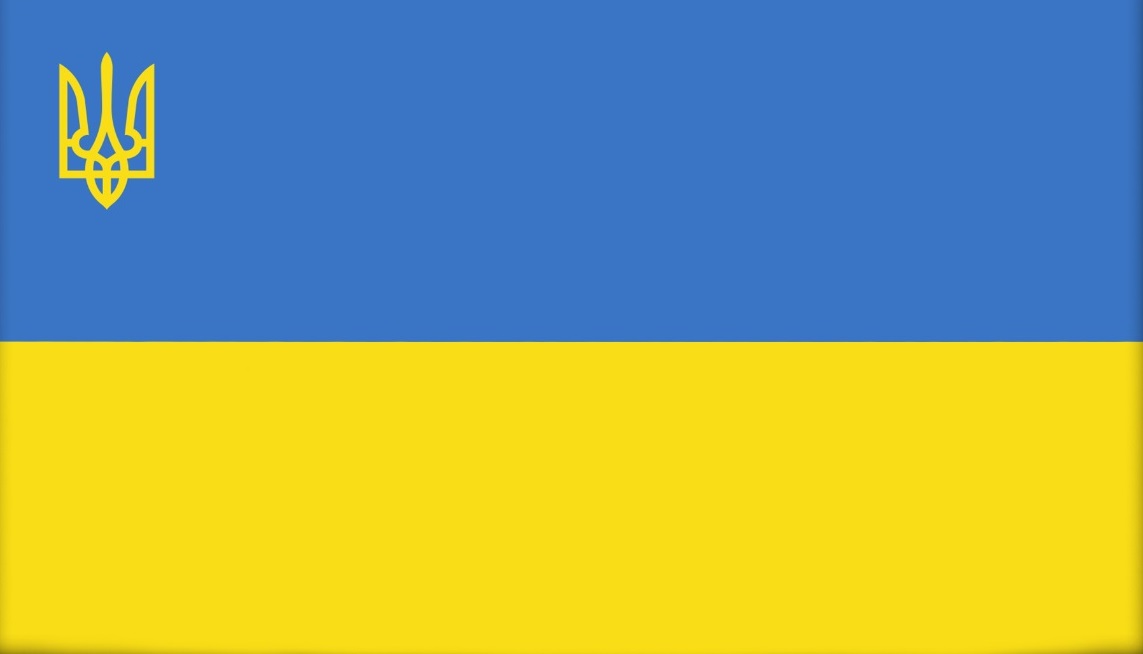 Long Live Ukraine Long Live Ukraine |
 Long Live Taiwan Long Live Taiwan |
 Long Live South Korea Long Live South Korea |
Respond to This Article Below The Last Comment
Comment
Respond to this WebPage immediately below the last comment.
Or,
Comments
Respond to this WebPage immediately below the last comment.
Or,Publish
your own whole new Article from right here.
Wednesday, December 19,
2012
Converted Page to SBI! Release 3.0 BB 2.0.
Date: Thu Jan 09 06:28:37 2014
From: OTR Trucker
Email:
Location:
Comment:
Vic,
I have been away from the faith for so long I forgot everything I every knew about it. My wife is Baptist and the kids go to sunday school. I think she would be open to switching to Catholic faith. I don't even know the last time I went to confession, but it was when I was a little kid. I am OTR and only home about once a month. How do I even get back on track, when I can't even go to mass? Your writing is very uplifting. I would appreciate any suggestions you could make.
Date: Thu Jan 09 07:14:09 2014
From: Vic Biorseth
Comment:
OTR:
Been there, done that. My sincere sympathies for all the away-from-home problems attendant to being an OTR trucker.
For yourself, the process is immensely easier than you think it to be. Just go to confession. Don't waste a lot of time ahead of time trying to prepare; just say sincere prayers of contrition for all your sins, and let the priest lead the conversation.
Just say "Bless me Father, for I have sinned", and then tell him it's been a long time, you don't even know where to begin, and ask him to help you out. He will lead you through a thorough examination of conscience, and through all the sins; just cooperate honestly with true contrition. Nothing you say will surprise him. He's heard it all before. You will not shock him. It won't take nearly as long as you think. When he absolves you, you will instantly lose a huge amount of weight. He will ask to hear you make a good Act of Contrition.
Here is the version I use:
O my God, I am heartily sorry having offended Thee,
Who art all good, and deserving of all my love.
I firmly resolve, with the help of Thy grace,
to sin no more, and to avoid the near occasion of sin.
Amen.
For your wife, see if you can get her into contact with a priest, deacon or lay minister in your local Parish, to talk about the Catholic faith.
Please, keep in contact; let me know how things are going with you and yours.
Blessings, and Warmest Regards,
Vic
Date: Sun Nov 16 2014
From: Vic Biorseth
Comment:
Changes pursuant to changing the website URL
and name from
Thinking Catholic Strategic
Center to
Catholic American Thinker.
Pulled the trigger on the 301 MOVE IT option June 1, 2014. Working my way through all the webpages. .
Regards,
Vic
Language and Tone Statement
Please note the language and tone of this monitored Website. This is not the place to just stack up vulgar one-liners and crude rejoinders. While you may support, oppose or introduce any position or argument, submissions must meet our high Roman Catholic and Constitutional American standards of Truth, logical rigor and civil discourse. We will not participate in merely trading insults, nor will we tolerate participants merely trading insults. Participants should not be thin-skinned or over sensitive to criticism, but should be prepared to defend their arguments when challenged. If you don't really have a coherent argument or counter-argument of your own, sit down and don't embarrass yourself. Nonsensical, obscene or blindly and doggedly repetitious anti-Catholic, antisemitic, anti-American, immoral or merely insulting submissions will not be published here. If you have something serious to contribute to the conversation, be prepared to back it up, keep it clean, keep it civil, and it will be published. We humbly apologize to all religious conservative thinkers for the need to even say these things, but the Hard Left is what it always was, the New Leftist Liberals are what they are, and the Internet is what it is.
"Clickbait" advertising links are not acceptable for posting here.
If
you fear intolerant Leftist repercussions, do not use your real name
and do not include email or any identifying information. Elitist Culturally Marxist Pure Authoritarians cannot and will not tolerate your freedom of speech or any opposition to their
rigid authoritarian, anti-equality, anti-life, anti-liberty,
anti-private-property, hedonistic, anti-Constitution, pro-Marxist, pro-Islam, pro-sodomy, pro-sin, anti-Catholic, anti-Christian, anti-Semitic, anti-male, sexist, anti-heterosexual, anti-white, racist, anti-Western,
anti-American, Globalist, anti-Nation, blatantly immoral, totally
intolerant and bigoted point of view. This Site will not publish their intolerant and unwavering screeds.
Copyrighted Material
Solopreneur Opportunity Links, for a
Solo Build It WebSite
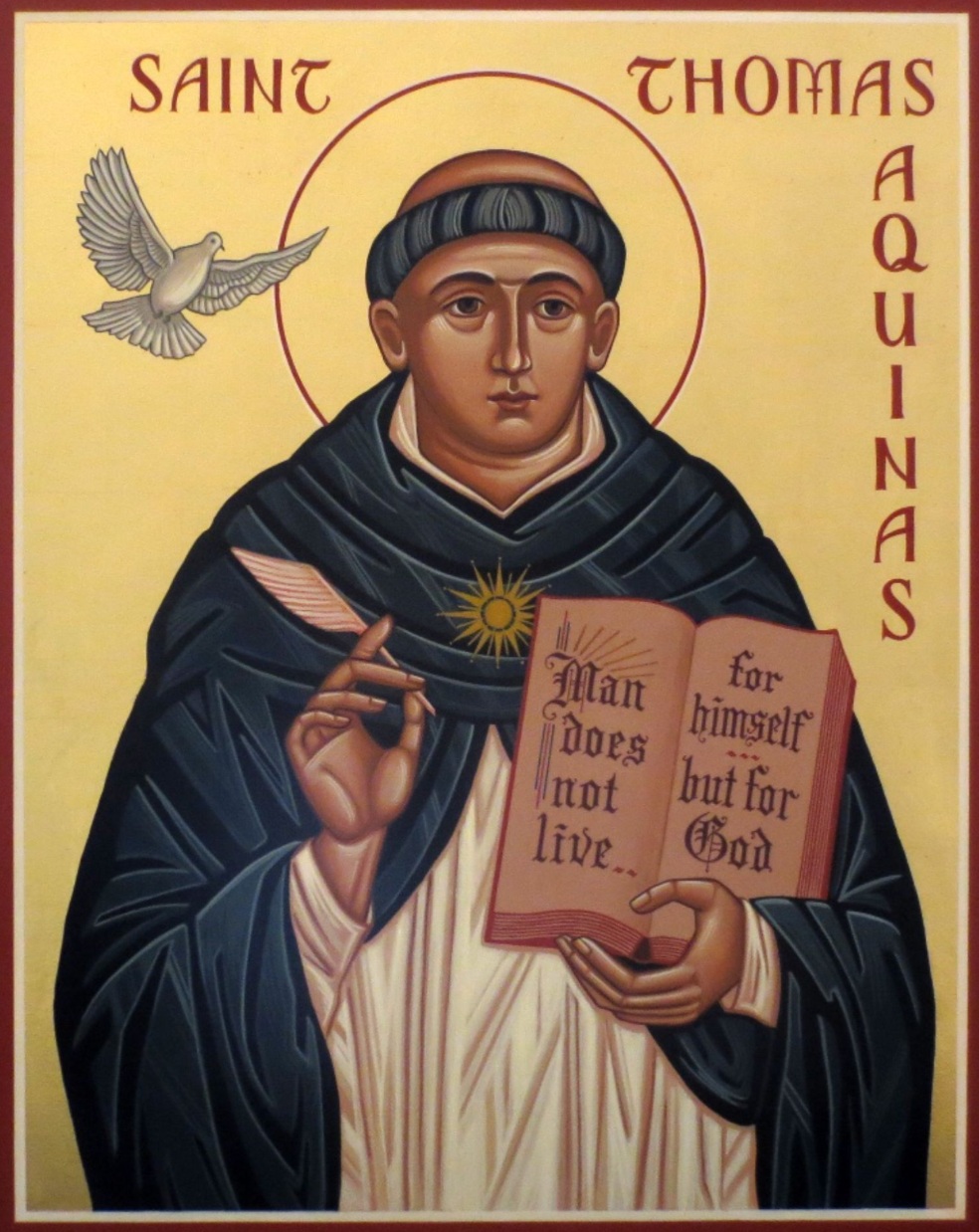
Enter ye in at the narrow gate: for wide is the gate, and
Broad is the way that leadeth to destruction, and many there are who go in
thereat. How narrow is the gate, and strait is the way that leadeth to life:
and few there are that find it! Beware of false prophets, who come to you in
the clothing of sheep, but inwardly they are ravening wolves.
Jesus
Christ; Matthew 7:13–15
Related WebPages
The
purpose of this grouping of articles is to display, defend and promote
orthodox Catholicism in alignment with the magisterial authority of
Rome.
Orthodox Catholicism Pages
Supporting original Deposit of Faith, the Magisterial Authority of Rome and the Catechism of the Catholic Church, to the letter.
Refuting "Brothers Of The Lord", again, for poor Scripture scholars. We have to go over the "Brothers Of The Lord" misinterpretation, over and over again, because newer generations of the misinformed just keep being maleducated.
Who's in Heaven? Catholics. How do we know? The Bible says so. Scripture, Tradition and consistent Church teaching down through the ages confirms it: In Heaven, there are no non-Catholics.
There is no salvation outside the Catholic Church. Once you know Christ founded it, then you must enter it, or not leave it, for there is no salvation outside of it.
The Seven Catholic Sacraments in Scripture. Protestants always ask for Scriptural evidence for all of our Sacraments; so here it is.
Indifferentism and Moral Relativism eats away at Catholic Culture. Catholicism stands against Indifferentism. Where do you stand?
The Latin Mass Page is to be a repository for links to Latin Mass availability. If your Church celebrates the Latin Mass, send a link to the Latin Mass Page.
The Traditional Latin Tridentine Mass Explained, Step By Step.
With Benedict XVI's Motu Proprio 'Summorum Pontificum', the Traditional
Latin Tridentine Mass may need explanation for the uninitiated.
Tridentine Mass Implements and Vestments
Describing the required Tridentine Mass Implements and Vestments
Background history of the recent Catholic reformation (revolution?) in liturgy.
Reform of the Liturgy began with good intentions toward minor changes,
yet almost permanently trashed Latin, and Chant, and, etc., etc., etc.
Benedict XVI's Motu Proprio Summorum Pontificum; Apostolic letter on 1962 Rite.
The Motu Proprio Summorum Pontificum confirms the 1962 Latin Rite as the 'Extraordinary' Roman Liturgical Rite.
The Pope's Letter to Bishops on Summorum Pontificum. Benedict XVI's Letter to Bishops on Summorum Pontificum issued the same day as the Motu Proprio.
The Explanatory Note on Motu Proprio Summorum Pontificum. An 'Explanatory Note on Motu Proprio Summorum Pontificum' issued by the Vatican.
Catholic Marriage Annulment: Is it merely the Catholic version of Easy Divorce. Ecclesial law regarding the Catholic marriage annulment process has not changed, yet the numbers of annulments granted in America have rocketed. Why?
John Paul II, alias John Paul the Great, now becomes Blessed John Paul. Blessed John Paul the Great has been beatified; now, on to sainthood!
Our Lady of Siluva appeared twice in Lithuania, in AD 1608. Our Lady of Siluva appeared with the Christ Child in her arms; the rock on which she stood is preserved in a shrine.
Welcome to Holy Cross (Lithuanian) Roman Catholic Church. Holy Cross Church in Old North Dayton, maintaining the Lithuanian ethnic heritage.
Woodcarver George Mikalauskas produces unique, and custom, Lithuanian crosses. A Dayton, Ohio native of Lithuanian heritage, George prayerfully produces crosses in the ancient Lithuanian style.
The conservative Catholic forum promotes orthodoxy and attacks heterodoxy.
Actually, Conservative Catholic Forum (or Liberal) make no real sense
here. A Catholic teaching is either correct, or it is incorrect,
according to official Catholic Church authority.
“Are you saved” might be the conversation starter with a devout Protestant.
First, are you saved; then, are you saved by having been “born again”
(but not by Baptism) are the two popular questions of Protestantism.
Is the Bible the sole authority for teaching Christianity?
If Holy Scripture is the sole authority for Christian teaching, then, where does it say that in Holy Scripture?
Is faith alone the sole requirement of salvation?
Luther’s dictum says that man is justified by faith alone. Is it true?
The Eucharist is our Emmanuel, our "God is with us." Who else can say it?
Roman Catholicism is centered on Eucharist; it is a central dogma of our faith.
The contentious issue of Infallibility of Papal and Church teaching.
On matters of faith and morals, and matters relating to Divine
Revelation, our central Catholic trust is in the Infallibility of the
Holy Ghost, Peter, and The Church, acting together.
The Thinking Catholic responses to questions re perpetual virginity of Mary.
From the "brothers of the Lord" to "The Davinci Code" to the word
"until" in Matt. 1:24-25, the ancient Hebrew cultural notion of
Professed Perpetual Virginity is doomed to be repeatedly challenged.
Catholic Prayer is described in the Catholic American Thinker.
The Catholic American Thinker describes, defends and presents Catholic Prayer, in all its diversity.
A submission of the “The Church is rotten to the core” argument and its basis.
If indeed the church is rotten to the core then all is lost; unless, of course, the statement is untrue.
"The History Channel" repeats the flagrant categorical lies regarding Pius XII.
Ho hum, heavy sigh, and here we go again. Once again, we see show-biz
"Historians" bypassing actual historical documents in favor of purely
anti-Catholic show-biz fictional works, for fun and profit.
On Straying, Right or Left, from the Catechism.
We have before us, on one side, excesses of "Social Justice" and
"Liberation Theology", and on the other, the "Lefebvre" movement and
related groups. In the center: the Catechism.
The "Enlightenment" birthing of Historical-Critical Scripture analysis.
Historical Criticism of the most paranormal literature ever produced
calls into question the "enlightenment" of the enlightened.
Freedom's Circle: Free Will's relationship to Love, and to Evil. Looking at Freedom, and it's relationship to Good and Evil.
Real Freedom.
The nature of Freedom, in Concept and in actual Fact
Tradition and Moral Discipline Vs. Impulsiveness, Popular Fad and Moral Chaos.
America was born of tradition and moral discipline, and she changes for the best when the process is steady and natural.
Proper catechesis is the glue that keeps the Church and the People Catholic.
Lack of proper education may cost you your liberty; lack of proper catechesis may cost you your soul.
Faith versus Atheism: Is atheism really just a silly superstition?
The Faith versus Atheism argument is at the root of every other important argument.
It's The Inquisition Myth, Vs. the various Catholic and Protestant Inquisitions.
On the history of the inquisitions (plural) that existed, and The
Inquisition, which did not. The Inquisition Myth became a handy club
with which to abuse Catholicism and Catholic history.
The Galileo Inquisition: Contemporary Icon for the Enlightenment and Scientism.
The Galileo Inquisition was no small affair at the time, but over the
centuries it has grown and become a club with which to beat the Church,
and to promote the myth of the "Dark" ages.
The Christian Medieval Crusade, the preceding events, and the aftermath.
The Medieval Crusade describes what is popularly called The Crusades;
Christendom's attempt at self defence, and the freeing of the Holy Land.
The Infamous Byzantine 4th Crusade: A Total Failure in Direction and Purpose.
In the Byzantine 4th Crusade we find classic results of intrigues,
sub-plots and greed overpowering and taking over good intention.
Artificial Contraception: Tool of Materialism with which to destroy Monotheism.
Acceptance of Artificial Contraception marked the single most
destructive turning point in the history of Western Culture, marking the
end of moral norms, foretelling tolerance of anything at all.
Our argument against public despair, hopelessness and pessimism re the future.
Despair is a mortal sin, the opposite of the virtue of hope; it is a
sin unto the death of the soul, a repudiation and rejection of God’s
grace.
Returning to American Founding Principles offers a return to national salvation.
American Founding Principles are reawakened by the mortal threat to the nation posed by Obamunism.
The Fracturing of Christianity: loss of unity of message and teaching authority
The history of the Fracturing of Christianity amplifies the need for ecumenism and healing among men of good will.
Getting ready for Paczki Tuesday. Paczki Tuesday is the old time European version of Fat Tuesday.
What is it that makes us uniquely Catholic? What defines a Catholic culture? Our baptism and our faith make us Catholic, but it is through the living out of our faith that we build and participate in the larger Catholic culture.
More American Imperial Edicts Issuing Forth out of Obamunism. Archbishop Schnurr joins Rick Santorum in identifying American Imperial Edicts from this administration.
Bringing the Liturgy Back to the Real Vatican II. Cardinal Burke Comments on Sacra Liturgia Conference
The Church calls us all to Catholic Evangelism; how do we do that? Catholic Evangelism comes easier than Protestant variants because it has its base in Truth.
Fallen away Catholics may be America's largest Christian denomination. An appeal to Fallen Away Catholics: Christ is calling you home.
Reconciliation with God, through a good Confession with Absolution. Repentance, resolve, confession, absolution, penance, and uplifting, EXHILARATING Reconciliation.
Catholics learn and practice Glossalalia, in the Life In The Spirit seminars. Life in the Spirit seminars, fueling the Catholic Charismatic renewal, bring tongue-speaking "Glossalalia", and being "Slain in the Spirit", to Catholicism.
The List of the Catholic Popes and the Historicity of the Catholic Church. Each of the Catholic Popes has a documented history, and these histories show the Apostolic Succession from Peter.
Nito Gnoci
Linda Kimball
The White House: We Hold These Truths to be Self-Evident, That All Men are Created Equal and Endowed by their Creator with Inalienable Rights
The Sacrificial Fall of Lucifer and the Evolutionary Rise of the Death Cult’s Global Luciferian Religion
Two Kinds of Wisdom and the Lamb’s Book of Life Luke 10: 17-20
Hatred, Envy, Resentment, Vengeance: Why Whites Need Not Apply Lawless Politics of Sin
The evil materialist faith of global Luciferianism, Technocracy, Socialism, and Marxism
Prayer Against Wicked Ideologues Rescue us, O Lord!
System of Lies: Ideological Paradise on Earth and Why the Bloody, Violent Dream Will Not Die
Christendom and Protestant America’s Apostasy into Paganism A Timeline
The presence and influence of powers, principalities, and demons in our age of apostasy into godlessness
Nihilism…All That Exists is Matter and Energy The Worldview that Caused the Collapse of Christendom and Protestant America
Revisiting Nihilism: The Will Turned Toward Evil and the Destruction of Western and American Civilization
The enemies of God, reality, truth, western civilization and our souls Linda Kimbal column
The Last Hour and the New World Order Prayer
Our Call to Battle: Rise of the Spirit of Antichrist Prayer Article: “And this is that spirit of antichrist, whereof ye have heard that it should come; and even now already is it in the world.” (1 John 4:3)
God to Mankind: NOW Do You See the Stupidity, Depravity, and Evil in Your Hearts?
Raising the New Tower-- Occult Evolution: Antediluvian, Babylonian and Modern Expressions
Psychopathy and the Western and American Tyranny of Evil Leftist Progressive Myths
Supernatural Genesis 1-11 vs. Pagan Darwinism God and Liberty or Fallen Mankind and Tyranny
Luke 21: 29-31: Some Signs Of America's Abandonment And Spiritual Bondage
Eternal Paradise Or Hell? How And Why Both Choices Are Freely Made
Luciferian Humanists: Citing the Genesis Account is Evil "Any country grounded in Judaeo-Christian values can't be overthrown until those roots are cut ... "
Who is intolerant because ashamed: Creationists or Evolutionary Theists?
Death of the Christian God in Hearts of All Humans Why America and W. Europe are Committing Suicide
THE WORLDVIEW OF EVIL SPIRITS - an article by Linda Kimball MAGICAL MYSTERY CHURCH
Pagan-Darwinian-Materialism Redoubt of Miserable Self-Deceived Non-Self Nihilists
Americas' Spiritually Dead, Deep State and Ruling Class Nihilists Walking Dead Parasitic Idolaters
Doctrines of Demons and the Modern Pagan and Pantheist Antithesis The West's Greatest Threat
Gnosis: The Main Expression of Paganized Christianity in the New Age Inner Knowing, Self-Salvation
Our Age of Malicious Perversion How Truth, Meaning, and Reality Have Been Perverted
The Serpent's Gnostic Luciferian Elite Oligarchy and Global Powers Demonic Darkness Over the West and America
The Creation Model Versus Modern Pagan Models
2 Corinthians 10:5
What Kind of God Do You Believe In?
2 Cor. 10:5 Destroying 'scientific' arguments for false Gods
Evil Spirits, Death of God, Satanic Inversion Pagan America's Reality of Madness, Demonic Bondage, and Non-Self
Judgment and Wrath The Biblical Explanation for Madness and Evil
The Worldview of Evil Spirits Revolution, Evolution, Materialism, Nihilism, New World Order, and More
Gnosis The Main Expression of Modern Paganized Christianity
America's Transformation Into A Mystical Pantheist God-State What the Death of God Has Wrought
Message to All Wearied Truthtellers: Let Isaiah Be Your Inspiration the Remnant
The Triune God, Supernatural Heaven, Souls, Hell, and Demons Do They Exist?
Teachings of Demons The Aeon of Horus, Reign of God-Men, and End of the Christian God
Revelation 2:7" ...the closing of a steel door – a solemn, cataclysmic slamming of a door."
Systemic Nihilism: End of the Human Race Eternal Damnation of Human Souls
Infernal Apocalyptic Atmosphere Over America Disintegration into nothing
Global and Ruling Class Criminal Elitists Their Ring of Power and Pact with the Spirit of Death and Hell
Blessed is the Man Who Does Not Listen to Falling Stars Who Follow After Damnable Heresies
Darwinism: An Abomination Aborting and Rotting the Church. The falling away and apostasy from the one true and personal Holy Triune Creator God has not ended
The Evil One and the Impenitent Who Receive His Mark“. And the LORD God formed man (and) breathed into his nostrils the breath of life; and man became a living soul.” Genesis 2:7
The Fall of Mankind, the Religion of Evolution, and the Antichrist. "Pride goes before destruction and a haughty spirit before a fall." Proverbs 16:18
Why Secular Liberals Actively Promote Evil. Mentally Retarded Liberals
Cultural Marxism. The Many Hidden Faces of Living Active Communism
The Devil, the Big Bang, Evolution, Extraterrestrials and the Genesis Problem
The Ascension To Power Of Misogyny. Hatred of Women
Gnostic Chiliastic Evolution: Satan's Alternative Plan of Salvation. The Great Reset
Why Proclaiming Jesus Christ the Word Became Flesh is Offensive. The Technocratic Utopian World Order
The Divine Androgyne, Pandemonium, and the Battle for Our Souls. Satan's Rising New World Order
America's Modern Pagan Oligarchy, Aztec Gods, and Human Sacrifice. Isaiah 57 Revisited
The Peace Symbol: Occult Sign Meaning Death Against Christians. Hatred of Jesus Christ and Christianity
Americas’ Spiritually Desolate, Parasitic, Ruling Class Nihilists. Satan and Powers and Principalities
Global Oligarchy, Forces of Darkness, and the Spirit of Antichrist. Forces Darkness Within Church and State
Darwinism: Idol of mind symbolizing hatred of Triune Creator God. And Logical End of America
Is the World a Computer Simulation in the Minds of Robotic Overlords? Magic Science, Transhumanists, Gnostic Physicists.
Your soul: Cost of admission to the Progressive Pagan City of Man. New Egypt, Babylon, Sodom and Gomorrah
Iron Curtain Over American Minds Progressive Marxisms’ Ideological Utopia
Satan’s New World Order Blueprint and Key Strategy. Christian Capitulation To the Serpent's Consensus Process
Chaos, Breakdown, Demoralization, Destruction: America's New Normal. How it came about and where we are going.
Demonic Darkness: America's Invisible Wave of Evil. Staring into the abyss
Cain, Marxism, Leftism and America's ruling class of 'superior' humans. The dragon they have in common
Modernist Christians in a Man-Centered Universe. Scientific Neutrality and Biblical Deconstruction
The Connection Between Baphomet and Why Researchers Are Creating Interspecies Embryos. 2 Corinthians 10:5
Isaiah 57 revisited: America's progressive pagan elites. Staring into the Abyss
Evolutionary Theism Implies That Christ is Wrong About Creation. "For if you believed Moses, you would believe Me, for he wrote about Me. But if you do not believe his writings, how will you believe My words?" John 5:46-47
Utopianism. Progressive Utopian Cultural Marxism Poisoning Minds, Churches, Schools, Politics
Acts 17:18-19-modern pagan and pantheist antithesis of the Word of God Ecclesiates 1:9 "What has been is what will be.."
Trotsky's Permanent Revolution From Hell In America. The Soviet System in America
Why Transgenderism Is Being Forced Upon America and Our Children. The Divine Androgyne
The Evil Eye Of Envy: Why Being ‘White’ Is Offensive To Some People. No Vice Worse Than Envy
Absolute Nothingness and Non-Self: The Reigning Worldview of Global Power Elites and Western Ruling Classes
What is Evil? Man-made alternative realities
Cliff Kincaid
Trump is Destroying Reagan's Legacy By Cliff Kincaid
Trump is a Marked Man By Cliff Kincaid
Terrorist Attack in Baltimore By Cliff Kincaid
Moscow Terror Attack is Another KGB Operation to Fool the West
Obama’s New Nazi-Communist Alliance
On the "Days Of Rage" Planned For The 2024 Marxocrat Party Convention Some of you just couldn't believe that the formerly Democrat
(Confederate) Party had already gone totally Communist before the 1968
Party Convention
Making Russia Great Again By Cliff Cinkaid
De-Nazification and De-Communization in Russia The The mutual non-aggression Hitler-Stalin Pact, which started World War II, has been carefully “forgotten”
Climate Emergency To Produce a New World Order By Cliff Kincaid
The Next Phase of Obama’s “Permanent Revolution” By Cliff Kincaid
Evil in the White House In This War, The Enemy Is In The Ranks, Standing Right Next To You
Satanism, Communism: What's The Difference? Look To The Roots Of Communism
Fox Is the Leading "Trans" Channel There are some rather peculiar goings-on at the Fox News Channel.
Trump and His Communist Enemies The Demonized Joe McCarthy Turned Out To Be Accurate In Everything He Claimed: Fox News Is Wrong About Him And About Much More
The Five Stooges on Capitol Hill They Think We Need Even More Doped No-Hopers In The American Intelligence Community
The Biden Doctrine of Demoralization and Defeat By Cliff Kincaid
A Republican Church Committee? Do Pro-American Republicans Even Know Who Frank Church Really Was?
A Top to Bottom Housecleaning of America When we clean our house, my wife has a slogan, “Top to bottom,” meaning you have to target the whole house. The same advice applies to nations.
China's Mass Murder Experiment Phase Two
Bury The Dead And Move On Fuggedaboutit!
9/11 Truth This is the real 9/11 Truth: Our “intelligence” agencies are infiltrated.
Moving Toward Gorbachev’s “World of Communism” It's called the Monster Plot.
The Errors of Russia, the Dupes of Putin, and Another Holocaust Can The Increasingly Faithless Free World Be Saved From Russia?
World War Quietly Conquering A Distracted and Blithely Unaware World. Could it actually be Satan's world war on despised humanity?
Stand With Ukraine Against Russia and China By Cliff Kincaid
Tucker Carlson Carlson Gets His Comeuppance. Tucker's View: It is not moral for us to intervene in support of any nation's (Ukraine's) democratic self-determination and against Soviet military expansion.
The Need for Secure Borders. Have we so easily forgotten what borders are for? Have we forgotten that evil exists in the world? Have we forgotten how to keep apart from this evil?
Can Ukraine Survive Putin and Biden? Can America? Can the Free World? Can Faith in God?
The Soviet Union: Back From The Dead The Return of the Evil Empire
Could an American Surrender be in the offing with Biden at the wheel? Is this not the perfect time for Communism to strike, with Commies now governing America, China and Russia? What would Biden do?
Abortion and Communism. If you ever wondered where all the popular abortion-contraception-sexuality-perversion nuttiness came from, look to Marx's Communist Manifesto.
The Secret Life of Martin Luther King, Jr. A life almost totally at odds with his reputation as a minister of the Gospel.
"We belong to the Church militant; and She is militant because on earth the powers of darkness are ever restless to encompass Her destruction. Not only in the far-off centuries of the early Church, but down through the ages and in this our day, the enemies of God and Christian civilization make bold to attack the Creator's supreme dominion and sacrosanct human rights." --Pope Pius XII
"It is not lawful to take the things of others to give to the poor. It is a sin worthy of punishment, not an act deserving a reward, to give away what belongs to others." --St. Francis of Assisi
Truth is incontrovertible. Malice may attack it, ignorance may deride it, but in the end, there it is.—Winston Churchill
The smallest minority on earth is the individual. Those who deny individual rights cannot claim to be defenders of minorities.—Ayn Rand
Atheist Genesis:
In the beginning there was nothing, and nothing happened to nothing.And then nothing accidentally exploded and created everything.
And then some bits of everything accidentally encountered other bits of everything and formed some new kinds of everything.
And then some bits of everything accidentally arranged themselves into self-replicating bits of everything.
And then some self-replicating bits of everything accidentally arranged themselves into dinosaurs.
See?
(See The Darwinism Pages)
If you can't find the page you're looking for, try the
SITE MAP.







